PhD - PhD in Theology - Durham/VST
VST has partnered with the Department of Theology and Religion at Durham University in the United Kingdom to deliver a PhD program in Vancouver. The Department of Theology and Religion at Durham is ranked third in the world by QS University Ranking. It is a department that is thoroughly engaged with the church through St John’s College and Cranmer Hall. This program, while suited to those with an academic vocation, is also suited for the clergy and other leaders who want theological depth and interdisciplinary research for the practice of ministry. The degree is granted by Durham University through the department of theology and religion.
Familiarize yourself with the Department of Theology and Religion at Durham.
Please note: Additional scholarship funding for this PhD program is available through VST up to $5,000.00 a year. A list of funds and foundations that support doctoral students in theology is available through the financial aid office .
At this time, the PhD program is only available to students who are Canadian citizens or have Canadian Permanent Resident status.

Length of Program
The international research PhD program through Durham/VST is a residential program. It is a three-year program for full-time students and a six-year program for part-time students, although extensions may be granted by successful petition. Students who wish to apply to this program must live within commuting distance of VST. The expectation for both full and part-time students is that they participate in the academic culture of the school, in the classroom as teaching assistants, in the research colloquium, and in conferences hosted by the school. This program is for permanent residents and citizens of Canada.
Useful information – requirements, costs, expectations and faculty – about the PhD program in Theology and Religion at Durham can be found online: Durham University
Residency requirements are met through meetings with VST advisors on campus, and Durham advisors online.
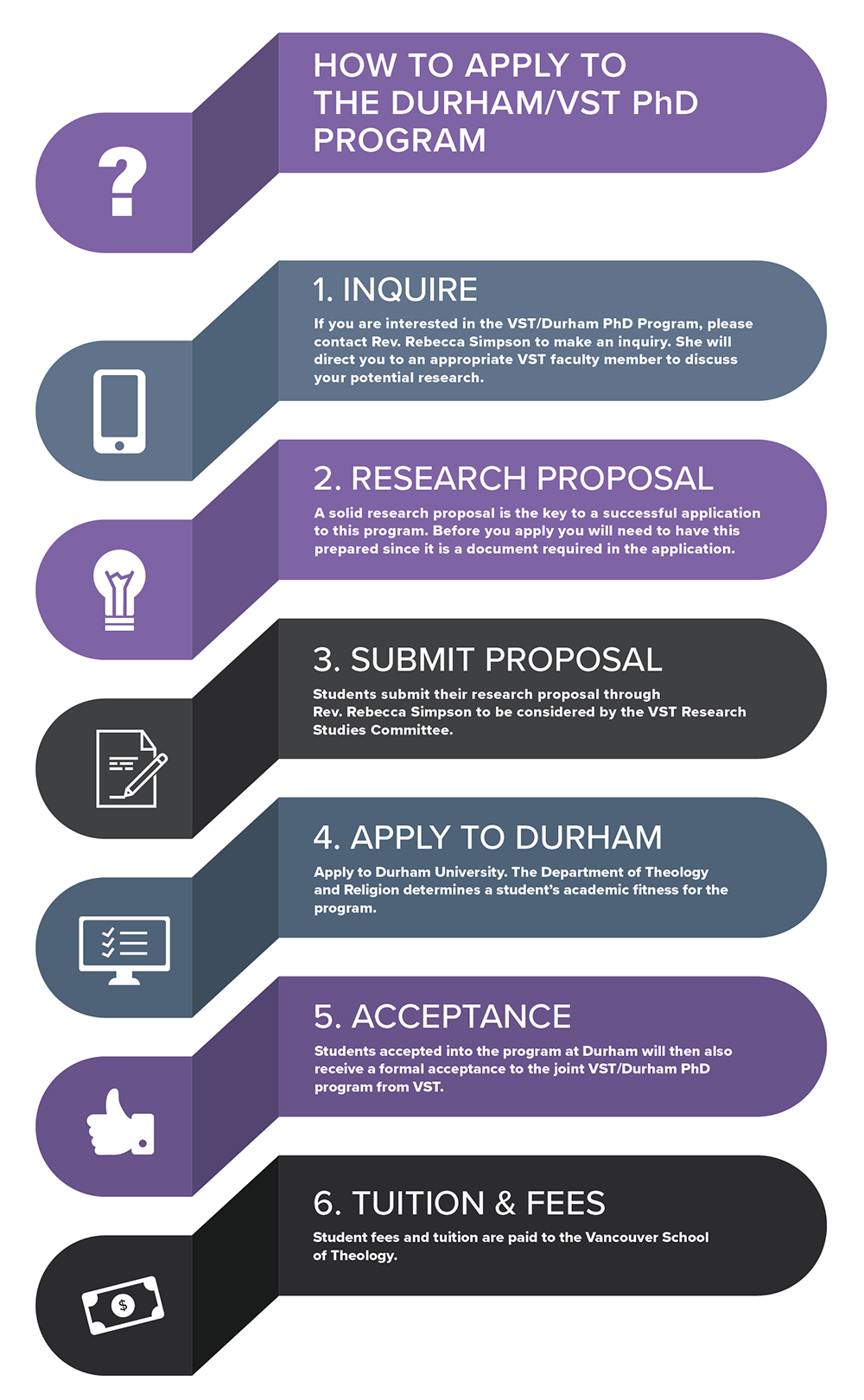
Detailed Steps
- If you are interested in this PhD Program, please be in contact with Rev. Rebecca Simpson to make an inquiry. She will be interested in the area of your research and will direct you to an appropriate VST faculty member, who is able and willing to support your potential research. Rebecca and the VST faculty member will help you be in touch with a member of the Durham faculty who is able and willing to support your research as a second director of your work. If you are unable to find a director on the VST faculty and on the Durham Faculty who will support you in the proposed research, entry into the PhD program is not possible.
- A solid research proposal is the key to a successful application to this program. Before you apply you will need to have this prepared since it is a document required in the application. Durham University provides important guidance around a solid proposal: Durham Research Proposal Guidelines . You will develop this proposal with advice from your VST director and with the input of the second director from Durham. Yes, this is all before the formal application to the VST/Durham PhD program. This informal pre-application process will serve to strengthen your application and expedite your progress on the thesis if accepted. Once you and both potential directors are satisfied that you have a strong proposal, you can move to the next step.
- Students submit their research proposal through Rev. Rebecca Simpson to be considered by the VST Research Studies Committee – chaired by Laura Duhan Kaplan. Do not apply to Durham until you have received approval to do so from The Research Studies Committee at VST. This does not imply that the student is accepted to the Durham PhD program. It is an initial step. Once you have received approval of your thesis proposal from The Research Studies Committee at VST proceed to step 4.
- The student applies to Durham University, copying their full application to VST through the VST Registrar. Durham University, the Department of Theology and Religion, determines a student’s academic fitness for the program. The application procedure is detailed here: Apply to Durham University . The application requires care and an investment of time. Durham will inform candidates of the decision on their application in four to six weeks after it is submitted.
- Students accepted into the program at Durham will then also receive a formal acceptance to the joint VST/Durham PhD program from VST. Admission at Durham and VST are necessary for this program. And they will occur in that order – first Durham and then VST will notify you of your acceptance to the program.
- Student fees and tuition are invoiced by Durham and paid to the Vancouver School of Theology. Rates for the current academic year can be found here: Full Time or Part Time . A Postgraduate Research Degree in Theology & Religion is considered Band 1. An international research PhD is expensive, and students should use research skills to secure funding through the sources available to them through Durham, VST and by using the inventory of funding sources provided to them through the financial aid office. A bursary to cover ‘student fees’ applied to their account at our school is available. Students applying to the PhD program by December 1st are eligible to access Durham’s student funding. NOTE: As the Ph.D is a program of Durham University, students are not eligible for Canadian student loans.
For further details regarding the application process, forms and dates, entry requirements and Durham based scholarships and funding see: Durham Research Programmes
Distance Learning
The PhD in Theology is a residential degree.

- All Programs
- Centre for Asian-Canadian Theology & Ministry
- Ministry Forum – The Centre for Lifelong Learning
- English Proficiency
- Tuition/Financial Aid
- Resources & Forms
- Online Learning Resources
- Caven Library
- Student Association (M&T)
- U of T’s Centre for International Experience
- Alumni Associations
- Giving and Initiatives
- Alumni Library Services
- Transcript Request Form
- Vision & Values
- Accreditation
- Affiliations & Partnerships
- The Knox College Building
- News at Knox
- In Memoriam
Knox College, Canada
Doctor of philosophy in theology (phd).
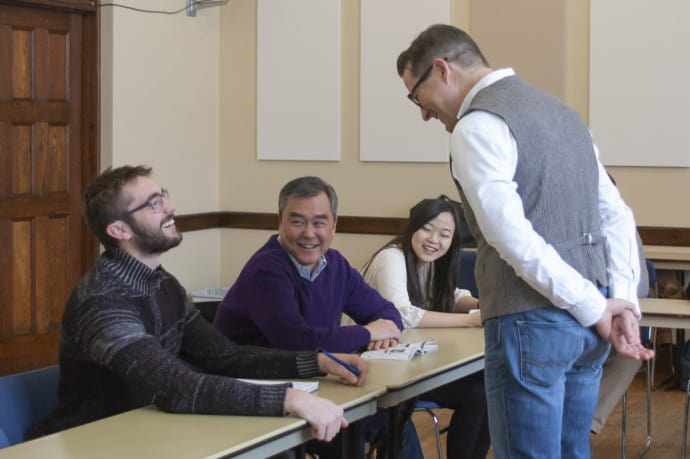
Program Overview
In partnership with the Toronto School of Theology, Knox College provides the opportunity for more advanced work in areas of interest to our students. All Graduate Degrees are offered through the Toronto School of Theology (TST), and students are required to register at one of the TST Colleges. Knox College is one of the seven TST Colleges. Administration of the graduate program is a joint responsibility of TST and the particular College. Graduate programs at Knox include two master’s programs (MA and ThM) and two doctoral programs (PhD and DMin).
The Doctor of Philosophy in Theology (PhD) is a research doctorate undertaken in a specialized area of study. Program requirements include meeting research language requirements in two languages, course work, general examinations, and a thesis which makes an original contribution. Find a full program description here on the TST website.
Admission Requirements
- Master’s degree in appropriate field
- CGPA 3.7/4.0 or greater (80%; A-)
- Academic Research Language
- English-Language Proficiency
Admissions to this program are overseen by the Graduate Center for Theological Studies (GCTS) at the Toronto School of Theology (TST). Interested applicants must submit a Graduate Degree Program Application through the GCTS at TST.
Application, Admissions, and related deadlines are posted on the TST website at www.tst.edu/applying-graduate-degree-program . Please contact [email protected] for more information and assistance.
Program Outcomes
Doctor of Philosophy program learning outcomes Students will demonstrate: 1. Expertise in one theological area of focus, engaging with other areas of focus as appropriate. 2. Ability to practice pedagogical excellence in an academic, ecumenical, intercultural and multi-religious context. 3. Capacity to carry out original research at an advanced level.
Tuition Basics
For full tuition details and bursary information, visit our Tuition/Financial Aid page.
Main navigation
- Undergraduate
- Academic jobs
- ReOrienting the Global Study of Religion, Florian Zemmin
- Registration form - ReOrienting the Global Study of Religion
- 75th Anniversary Celebrations
- Research Areas and Fields of Study
- Graduate Funding
- Master of Arts
- Master of Sacred Theology
- Doctor of Philosophy
Doctor of Philosophy (Ph.D.)
Program information, admission requirements, comprehensive exams, language requirements.
- Thesis proposal
The purpose of the Ph.D. program is to engage students in advanced academic studies, normally in preparation for an academic career. The community of graduate scholars in this program is engaged in a broad spectrum of critical research involving any number of interdisciplinary approaches conducted on a number of different religious traditions. The faculty members are committed to the training of teaching scholars, making the School of Religious Studies one of few schools that prioritizes offering graduate students opportunities under faculty supervision to teach/lecture during their time in the program.
Women and Gender Studies
The Graduate Option in Gender and Women's Studies (GWS) provides graduate students with a cross-disciplinary specialization in feminist, women's, and gender studies. This Option is open to graduate students at McGill University enrolled in the School of Religious Studies. During the application process, prospective students can specify their interest in the Graduate Option through uApply . There are no prerequisites to enter into the Option. However, previous coursework in gender and women's studies provides an ideal foundation for more in-depth study of and research in feminist scholarship.
Student supervision in the Option is undertaken by one's departmental supervisor who oversees student work, including choice of thesis, dissertation, or project topic. A student's Ph.D. dissertation must be on a topic that significantly engages with issues of gender and/or women and/or feminism. For more information about Gender and Women Studies, visit the IGSF website.
Entry into the doctoral program is limited to applicants who have earned an academic Master’s degree in Religious Studies or Theology in a recognized graduate program, or those who have finished the course requirements of such a program with a minimum CGPA of 3.5/4.0.
Advanced standing (Ph.D. 2) may be granted if the completed Master’s level work included a thesis in the same area as that of the intended doctoral specialization and involved not less than six (6) courses (18 credits).
It is recommended that French and/or German be included in the bachelor’s or master’s work preceding doctoral study. For Asian Religions, students intending to enter the Ph.D. program must have preparation in the appropriate languages, normally Sanskrit or Pali for South Asian religion, Tibetan for Tibetan Buddhism, Chinese and/or Japanese for East Asian religion. For Biblical Studies, students intending to enter the Ph.D. program must have preparation in the appropriate languages, normally Hebrew and Greek.
Applicants for doctoral programs are requested to submit a substantial sample of their scholarly writing (15–20 pages) with their application.
Upon admission, students are assigned a Graduate Advisor. This is someone the School believes the student would be interested in working with. This is not their Graduate Supervisor, who will provide thesis supervision, develop a Thesis Proposal and plan a schedule for the Comprehensive Examinations. Students must advise the Student Affairs Coordinator of their supervisor(s) and supervisory committee by October of their first year. Additionally, each year by October 1, students must complete a research tracking progress report to assess degree progress.
Please note that a student who has not completed Comprehensive Examinations by the end of Ph.D. 3 may not qualify for T.A. employment, may not teach as a sessional lecturer and may not commence formal dissertation research and writing. Additionally, students who do not follow the timeline outlined below will not be considered for in-course funding.
Milestones and requirements will be closely followed on MyProgress. The timeline students can expect is as follows:
Ph.D. 1: Course work (by August 31 Year 1) (6 seminars) Ph.D. 2: Course work (by August 31 Year 2) (4 seminars) Ph.D. 3: Comprehensives (by August 31 Year 3) Ph.D. 4: 2 Required Languages (by August 31 Year 4) Ph.D. 5: Thesis Proposal (by April 30 Year 5) Ph.D. 6: Doktorklub (by April 30 Year 6)
Ph.D. students must complete all program requirements by the end of Ph.D. 7. Please see the Graduate and Postdoctoral Studies office website for more on Program Progression and Time Limitation.
Residency requirements
Refers to the number of terms (or years) students must be registered on a full-time basis to complete their program. Students are not permitted to graduate until they have fulfilled the residence requirement (or paid the corresponding fees) in their program.
Candidates admitted to Ph.D. 1 must be registered on a full-time basis for four consecutive years (8 terms) and candidates admitted to Ph.D. 2 must be registered on a full-time basis for three consecutive years (6 terms), after which they will continue as additional session students until completion of the program. Half-time study may be permitted upon request.
Candidates admitted to Ph.D. 1 take a minimum of six graduate seminars during their first year and four seminars during their Ph.D. 2 year; those admitted to Ph.D. 2 must take a minimum of four graduate seminars. If possible, two seminars should be in their area of specialization, and at least one should be at the 700 level.
Graduate seminars are defined as courses that are 500-level or higher. If possible, two seminars should be in their area of specialization. Note that RELG 745 is a required course, and one of the four to be taken in Ph.D. 2.
For a full list of available courses, please refer to the eCalendar or Minerva.
Gender and Women's Studies Option
Required courses.
Students in the Gender and Women's Studies Option must take RELG 745 as well as WMST 601 and 602:
Religious Studies: Interdisciplinary seminar on the concept of religious studies.
Offered by: Religious Studies
- Restriction: This course is available only to students in Ph.D. 2 or higher
- Jim Kanaris
Women's Studies: Examination of feminist theories and research methods from a variety of disciplinary perspectives.
Offered by: Inst for Gender, Sex & Fem St
- Alexandra D Ketchum
Women's Studies: Discussion and development of participants' research in gender and women's studies.
- Prerequisite: WMST 601 .
- Restriction: Must be enrolled in the Option in Gender and Women's Studies.
- Winter 2025
- There are no professors associated with this course for the 2024 academic year
and one 3-credit graduate seminar with a substantive focus on gender and/or women’s studies.
During Ph.D. 2 students should approach a member of the faculty to request supervision of the dissertation and to plan the Comprehensive Examinations (Comps). Full-time students normally complete the Comps after course work in Ph.D. 2 and before the beginning of dissertation research in Ph.D. 4. However, students may choose to commence Comps from the beginning of Ph.D. 2. At the latest, the Comprehensive must be completed by the end of Ph.D. 3. The thesis proposal should be submitted shortly after the completion of the Comprehensive, normally by the beginning of Ph.D. 4.
These examinations are designed to ensure that candidates are adequately prepared to undertake the research required for a doctoral thesis and to teach university level courses in their chosen field. They are meant to test students' competence in: (1) their field of specialization; (2) one or two cognate areas. The latter are areas related to the chosen field and are to be determined by the supervisor in consultation with the candidate.
The School of Religious Studies Guidelines for Comprehensive Examinations complement section 10.4 "Ph.D. Comprehensive Policy" of the Graduate and Postdoctoral Studies Calendar.
In general, Comprehensive Examinations in the School of Religious Studies follow a standard 3-part format.
A 3-hour Major Comprehensive exam (RELG 701)
The Major Comprehensive Examination tests the doctoral student's knowledge and understanding of the entire field in which he or she specializes. The content includes foundational texts and authors, main concepts and theories, the methodologies usually employed in that field, significant secondary scholarship, and important issues in current scholarship. The Examination determines whether the student has the professional scholar's grasp of the field.
A 3-hour Minor Comprehensive exam (RELG 702)
The Minor Comprehensive Examination tests the doctoral student's knowledge and understanding of a secondary field which is cognate or comparative to the field of specialization. The student should have sufficient knowledge and understanding of the field to be able to teach an introductory course in that field.
Students may propose to take the Minor Comprehensive Examination in a field outside the Area of their specialization. The actual determination of the Minor field will be determined in discussion between the candidate and the thesis supervisor. In consultation with the thesis supervisor, the professor responsible for the Minor field will prepare a select bibliography and set a three-hour examination.
A student who wishes to write a Minor Comprehensive Examination in a field not listed in these Guidelines must make a formal written proposal which must be approved by the Graduate Committee.
An Oral Exam of 90 minutes or less (RELG 703)
The Oral Comprehensive Examination is conducted by the examiners of the Major and Minor Comprehensive Examinations and is based on, but not limited to, the student's answers to the Major and Minor Examinations. The Examination provides the examiners an opportunity to clarify any questions which may have arisen on the earlier examinations, and the candidate an opportunity to supplement his or her written answers with oral explanations.
Exceptions to this format are noted below under Content and Format. Since the specific content and format of the Comprehensive Examinations depend on the program of study, the candidate must always consult a faculty advisor in the program in question. Depending on the candidate's research project, the thesis supervisor may require competence in additional languages or minor fields of study (see also Area requirements).
In all cases, the Examinations are graded by the faculty person who sets the Examination. The Oral Examination is conducted and graded by the faculty persons responsible for the Major and Minor Examinations.
The examinations will be graded Pass/Fail. After grading, the examiner(s) will provide a written report giving feedback to the student on the strengths and weaknesses of the student's performance on the Examinations, including the Oral Examination. The examiner's report of the grade and the student's performance will be kept in the student's file for reference during Degree Audit.
For Oral Examinations, the student may request the presence of another faculty member to act as a neutral observer and/or to tape-record the examination.
In the event of a failure, the policy of the McGill University Graduate and Postdoctoral Studies Office applies (see Graduate and Postdoctoral Studies Calendar, section 10.4 "Ph.D. Comprehensives Policy: Failures"). In the present policy, the student is allowed one repeat of the Examination. The student is informed in writing of the reasons for the failure and of the procedure for the repeat Examination. In such circumstances the grade of HH (continuing) will be used. The Advisor may impose conditions on the student for the repeat Examination, e.g., requiring the student to take further courses in an area of weakness. In the event of a second failure, a grade of F will be reported to the Office of Graduate and Postdoctoral Studies. After failure in any of the Major, the Minor or Oral Examination, the student will be asked to withdraw from the Ph.D. program.
Students may ask for a re-read of an Examination according to the procedure outlined in the "Graduate Studies Reread Policy" (Graduate and Postdoctoral Studies Calendar, section 10.5)
Specifications based on fields of study
Biblical studies, a. hebrew bible/old testament studies.
(Professors Kirkpatrick, Oegema)
The (three-hour) Major Comprehensive consists of two sections: (1) a journal surveying the field of Old Testament Studies identifying the main areas and perspectives of the field, the issues currently being discussed within a perspective and the main scholars participating in the discussions; (2) a written examination on six selected topics in the field of Old Testament which will be agreed upon by both the candidate and the supervisor. The exam will be three hours and consist of questions in three of the six area topics. The examination will only be given after the completion of the journal.
The (three-hour) Minor Comprehensive will assess the candidate's knowledge of a cognate area. The professor responsible for the cognate field in religious studies will set a three hour examination.
After both the major and the minor have been successfully completed the candidate will be given an Oral examination of no more than three hours based on the work covered for both the minor and the major written examinations.
B. Early Judaism
(Professor Oegema)
The (three-hour) Major Comprehensive consists of two sections: (1) a journal surveying the field of Early Judaism identifying the main areas and perspectives of the field, the issues currently being discussed within a perspective and the main scholars participating in the discussions; (2) a written examination on six selected topics in the field of Early Judaism which will be agreed upon by both the candidate and the supervisor. The exam will be three hours and consist of questions in three of the six area topics. The examination will only be given after the completion of the journal.
The (three-hour) Minor Comprehensive will assess the candidate's knowledge of a cognate area, normally either Old Testament/Hebrew Bible or New Testament. The professor responsible for the cognate field in religious studies will set a three hour examination.
After both the major and the minor have been successfully completed the candidate will be given an Oral examination of no more than two hours based on the work covered for both the minor and the major written examinations.
- Journal (60 pages): A Critical Assessment of 100 years of scholarship on Early Judaism. Written Exam, based on 3 of 6 topics from the Persian, Hellenistic and Roman period of Jewish religious, social and political history.
- Minor Comprehensives: Either in Old Testament/Hebrew Bible or New Testament/Early Christianity. A minor comprehensive in Jewish Studies, Classical History and/or Archeology is presently investigated.
- Oral Exam: 2 hour oral examination on Major and Minor Comprehensives.
C. New Testament Studies
(Professor Henderson)
The (three-hour) Major Comprehensive Exam consists of two parts:
- A three hour written exam on New Testament Greek (use of Lexicon is permitted).
- A three hour written exam on the Major Issues of Introduction of all New Testament writings with more in-depth knowledge expected for the writing(s) related to the intended thesis topic (e.g. Pauline letters, or the Gospel of John).
The (three-hour) Minor Comprehensive Exam for students specializing in New Testament Studies consists of a three hour, written exam in a Cognate field (e.g., Hebrew Bible, Greco-Roman Judaism, Patristics). The content covered in the exam is to be determined in consultation with the professor in the cognate area who will supervise the exam.
The Oral Comprehensive consists of a 90 minutes exam given by at least two faculty members. It will be on the same material covered in the Major Comprehensive, Part B.
The Minor Comprehensive Exam in New Testament Studies for students specializing in a different field consists of a three hour written exam. The content covered in the exam is to be determined in consultation with the professor in New Testament Studies who will supervise the exam.
Christian Thought and History
A. christian theology.
(Professor Farrow)
The (three-hour) Major: The examiner and the student will agree together on a list of eight to ten questions as a basis for the examination, which will contain no more than five of these. Preparation will be guided by an appropriate bibliographical foundation, which will also be agreed in advance.
The (three-hour) Minor: The examiner and the student will agree together on a list of six questions as a basis for the examination, which will contain no more than four of these. Preparation will be guided by an appropriate bibliographical foundation, which will also be agreed in advance.
After completion of the Major and Minor Examinations, an Oral Examination of one and one half hours will be conducted by the Major and Minor examiners. The Oral Examination will be based upon the candidate's written answers on the Major and Minor examinations.
B. Church History
(Professor Kirby)
Both the (three-hour) Major and the (three-hour) Minor Comprehensive entail an examination of the candidate's habitual knowledge of major themes in the history of the thought and action of the Christian Church. Candidates may elect to write on one of four major periods of ecclesiastical history: a) the early Church (up to seventh Ecumenical Council); b) the medieval period; c) the Reformation; or d) the modern era. In preparation for this three-hour written examination candidates will meet with their program advisor to agree on an appropriate reading list of primary and secondary texts. This reading list may emphasize particular elements of the history of doctrine and theology, institutional structures and development, or some other central theme, e.g., iconography, liturgy and worship, the relation of Church and State.
The (three-hour) Minor Comprehensive in Church History is ordinarily in a cognate field or area (e.g. Biblical Studies, Theology, or Philosophy of Religion); students are encouraged to discuss their choice of the Minor with their program advisor. Candidates should consult a faculty advisor in the area of the Minor to determine the specific requirements of this Comprehensive Examination.
An Oral Comprehensive Examination of 90 minutes will be held after completion of the two previous examinations, to be conducted by the examiners for the Major and Minor Comprehensives.
Religion and Culture
A. philosophy of religion.
(Professor Green)
The (three-hour) Major Comprehensive Exam covers foundational figures, texts, and themes in Philosophy of Religion. Candidates are to demonstrate a broad knowledge of the history, development, and contemporary state of the field, and to situate their address of particular aspects of, or possibilities within, the field in this broad context. In consultation with the program advisor, students formulate six exam questions (four of which will appear on the exam) with primary reference to the figures and problems that characterize the unfolding of the discipline.
The (three-hour) Minor Comprehensive Exam covers materials within the philosophy of religion that are clearly differentiated from those of the Major, or from the cognate research field of the candidate. Both the area and the topic are proposed by the student and agreed upon by both the Major and the Minor advisors, in order that the exam complement the specific research interests of each candidate. In consultation with the program advisor, students formulate five exam questions (three of which will appear on the exam) with primary reference to the particular figures, themes, and problems of importance to the candidate¹s research.
An Oral Examination of one and a half hours (based upon the candidate¹s written answers on the Major and Minor Exams) will be convened accordingly. Both exams are established upon a bibliographical foundation of primary and secondary texts, developed with and approved by the Major and Minor advisors.
B. Religious Ethics
(Professor Fiasse)
The (three-hour) Major Comprehensive is a three-part examination of three hours that assesses the candidate's knowledge of (1) theoretical ethics, (2) the history of one religious tradition with emphasis on its ethical systems, and (3) practical ethics.
The candidate will prepare a set of eight questions covering the field of specialization in consultation with the thesis supervisor. The set of eight questions should deal with important issues from the three sections (theoretical, religious and practical). After the questions have been approved by the thesis supervisor, the student will be given an examination of three hours. The examination will consist of three of the questions that the candidate has prepared.
The (three-hour) Minor Comprehensive will assess the candidate's knowledge of a cognate area (for example: philosophy of religion, Christian theology, Asian religions).
The professor responsible for the cognate field in religious studies and the student will agree together on a list of six questions as a basis for the examination. The professor will set a three hour examination for which the candidate will write answers to three questions. Preparation will be guided by an appropriate bibliographical foundation, which will also be agreed upon in advance.
Asian Religions
Asian religions area.
(Professors Braitstein, Pinkney, Sharma)
For the (three-hour) Major Comprehensive Examination, the candidate will prepare a set of eight questions covering the field of specialization in consultation with the thesis supervisor. The set of eight questions should deal with important issues which either span the historical spectrum or employ more than one methodological approach (historical, philosophical, social scientific, etc.). After the questions have been approved by the thesis supervisor, the student will be given an examination of three hours. The examination will consist of four of the questions that the candidate has prepared and the candidate will be asked to write answers to three of the four questions.
The (three-hour) Minor Comprehensive Examination tests the candidate's grasp of a field cognate to the field of specialization. The actual determination of the cognate field will be decided in discussion between the candidate and the thesis supervisor. The professor in the Faculty of Religious Studies responsible for that cognate field will prepare a select bibliography and set a three-hour examination, for which the candidate will write answers to three questions.
The School of Religious Studies offers courses in primary text source languages, such as Biblical Hebrew, Aramaic, Biblical Greek, Sanskrit, classical literary Tibetan. The School relies upon other McGill units for instruction in languages other than those mentioned above.
The successful completion of at least twelve credits at the post-secondary level in a language course, or successful completion of a language examination administered by the appropriate member of the School, will constitute evidence of the student’s having the required reading knowledge of the language in question.
Students are required to give their area committee evidence of reading knowledge of two languages other than English. These languages must be chosen from modern languages in which there is a significant amount of scholarship relevant to the student’s area of research or from classical languages relevant to the student’s area of research, or a combination of one modern and one classical language.
Research in some disciplines, or on certain thesis topics, may require proficiency in more than two languages besides English. In that case, additional language requirements as required for specialization may be stipulated by the supervisor.
Thesis proposal guidelines:
The thesis proposal is prepared under the direction of your thesis supervisor(s) with the guidance of your research committee and submitted to the Graduate Programs and Policies (GPP) committee for review and approval.
Drafting and submission of the Ph.D. proposal is not undertaken formally until the comprehensive exams are successfully completed.
General guidelines :
- Ph.D. proposal word count: 1500 words maximum (excluding bibliography).
- Your proposal must be submitted two weeks before the meeting of the GPP committee to be considered. Keep review deadlines in mind; they must be respected.
- The Ph.D. candidate is present at the GPP meeting for the discussion and review of the proposal. The student can give a short (3-5 minute) presentation of the proposal or go directly to questions from the committee. Normally only two Ph.D. proposals will be discussed in a GPP meeting.
- Submit your proposal with your name and student number, date, indication of the degree being sought, proposal title, and supervisory signature(s).
- It must be distributed in an unlocked PDF form that allows for highlighting and annotation by GPP committee members.
- Use a standard double-spaced format, with brief supportive footnotes.
Main elements of a proposal :
Apart from the provisional title, there are essentially FIVE main elements of a thesis proposal, which will normally (though not necessarily) appear discretely in the following order.
- Research question and thesis statement: The first section indicates the main subject of inquiry and the principal text(s) concerned. More specifically, it identifies the central task to be undertaken and the primary claim that is being made, a claim that will be elaborated and defended as the dissertation unfolds. Establishing the "problematic" and the "thesis" (that is, the question and the answer) is crucial to the viability of any proposal. Clarity here is essential and the labour required to attain it is an excellent investment. This process normally requires multiple revisions in the drafting the proposal and often involves important refinements or alterations to the version reviewed by the GPP committee. If one cannot formulate convincingly the main problem to be addressed, or the primary aim and claim of the work, the dissertation project is not yet ready to proceed.
- Literature Review: This section should position the thesis in relation to previous scholarship in the area, to show how the proposed project offers an original contribution to scholarly debate or addresses an important gap in the literature. The literature can be grouped into “schools” of interpretation, if such exist. A proposal cannot offer a thorough literature review, but should offer an examination of representative studies as a backdrop or a foil for your own inquiry. This normally will involve weeks or months of intensive research and reading, beyond your comprehensives, in order to have a good grasp of the literature relevant to your topic. While some research topics might not have a large body of existing academic literature, this limitation can be explained in the literature review section and literature relevant to the broader thematic concerns of the thesis can be mentioned here.
- Methodology and approach: This section sets out the relevant operating assumptions and the theoretical tools or types of analysis to be employed. The former should be clearly indicated and the latter competently articulated. Assumptions do not have to be defended but their bearing should, as far as possible, be recognized. Analytical tools should be appropriate to the subject matter and their use (or non-use) may require explanation or defence. Proposals dealing with scriptural or foundational documents usually involve various forms of textual, hermeneutical, theological, critical, or historical analysis. Ethnographic topics may entail anthropological, sociological or qualitative ethnographical approaches. Some topics may lend themselves to a mixed-methods approach. How does the approach you are proposing address some of the limitations or difficulties of earlier approaches? Will your theoretical or methodological approach offer something original to scholarship in your field of inquiry?
- Annotated outline: Provide a basic map of your project in the form of an annotated chapter outline. This should evince a coherent structure within which to develop your aims and arguments systematically. Ph.D. perhaps five or six. Descriptions of each should help the committee assess your readiness for the work proposed, though in that work you are not bound to its present outline, which may well undergo significant change dictated by future findings or conceptual adjustments.
- Select bibliography: This should include the main primary texts, or portions thereof, which constitute the focus of the inquiry. Also provide the most relevant critical literature which is most pertinent to the setting up of your own methodology and approach, specifically the most important criticism outlined in the literature review. Ph.D. bibliography: 1.5 page minimum (in addition to the proposal). You may attach your more extensive bibliography as an appendix if you wish.
General observations :
Keep the main text as clean as possible and make it accessible to those whose expertise is in other fields. Be concise, however, not impressionistic. Your research can and should proceed while you await review. Bear in mind that the labour that leads to a successful thesis proposal is the most important work that will go into your project. Where these elements are sound, the further work based on them is more likely of success and the misery of "thesis neurosis" much less likely. As Aristotle rightly maintained, “the beginning is most difficult.” It is perhaps more than half the labour.
Doktorklub protocol
Held monthly during the Fall and Winter terms in the Birks building, Room 100 (Senior Common Room), ‘Doktorklub’ provides doctoral candidates in the School of Religious Studies with an opportunity to make a formal presentation of their research in the company of their professors and peers. A Doktorklub presentation is a formal requirement of the Ph.D. programme and is customarily scheduled following completion of the other principal degree requirements including courses, comprehensives, language examinations, and formal acceptance of the thesis proposal. Normally 40 to 50 minutes in length, these presentations should consist in a concise summary of the dissertation together with some significant portion of the argument (e.g. a chapter). Doktorklub constitutes a fairly broad, interdisciplinary audience of scholars in Religious Studies; the substance of presentations should be framed accordingly. Presenters are invited to consult their Supervisors in this matter. Presenters at Doktorklub are invited to nominate a formal Responder (either a professor or a peer) who will offer 5 to 10 minutes of comment following the presentation.
The intent of the formal response is to initiate a constructive conversation about the main argument of the presentation. Presenters are asked to provide an abstract (400-500 words max.) of their presentation to be circulated by the convenor in advance to other members of Doktorklub. In addition presenters may wish to include a brief outline of the argument of their dissertation—e.g., a division of chapters—together with any pertinent text or quotations which might serve to illuminate the inquiry and promote the discussion. Regular attendance at Doktorklub is required of all Ph.D. students in the School. By established custom delegates of the Religious Studies Graduate Society provide refreshments in the foyer of Birks after each meeting of Doktorklub. Doktorklub should be completed no later than 30 April of Ph.D. 6.
Procedure for arranging a Doktorklub presentation Ph.D. candidates should consult with their thesis Supervisor(s) well in advance of the date of their proposed presentation. There should be a month’s lead-time in their contacting the Convenor of Doktorklub to arrange a presentation date. The Convenor will canvass the faculty and doctoral candidates to invite submissions at the beginning of each term.
Department and University Information
School of religious studies.
- Publications
- Student research
- Bachelor of Arts
- Bachelor of Theology
- Master of Divinity
COVID-19 Updates & Information
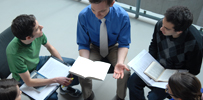
Regent offers four distinct graduate programs, each designed to fit different goals, interests, and parameters.
Compare all programs >
- Why Study Here
- Graduate Diploma in Christian Studies
- Master of Arts in Christian Studies
- Master of Arts in Theological Studies
- Master of Arts in Leadership, Theology & Society
- Master of Divinity
- Master of Theology
- Concentrations
- Anglican Studies
- Chinese Studies
- Choose your program
- Certificates in Christianity and Mental Health
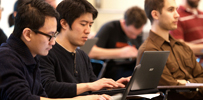
Anyone, from full-time and part-students to people seeking personal enrichment or further professional development, can take our courses.
Search courses >
- Choosing Courses
- Course Search
- Evening and Weekend Courses
- Condensed Courses
- Online Learning
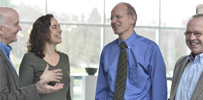
The quality of our faculty members is one of the primary reasons students choose to study here. We attract world-renowned scholars at the cutting edge of their field, who are published authors, passionate educators, and dedicated researchers.
- MA in Leadership, Theology & Society
- Part-Time and Visiting
- Faculty Associates
- Visiting Scholars and In Residence
- Research Faculty
- In Memoriam
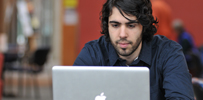
In this section, you will find all the information you need about applying to one of our graduate programs. You will also find details about tuition and fees, and financial aid opportunities.
Experience Regent >
Apply to Regent >
- Finance Your Education
- Admission Requirements
- Study and Work Permits
- International Students
- Transfer Students
- Students With Disabilities
- Contact Admissions
- Request More Information
- Application Procedure
- Newly Admitted Students
- Plan for Orientation
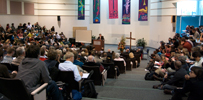
You don’t need to be enrolled in a graduate program to take advantage of our world-class learning opportunities. Take a course for personal enrichment during our Summer Programs, or on an evening or weekend. Attend a lecture or conference. There are so many ways to learn at Regent.
Go to Summer Programs
- Summer Programs
- Weekends & Evenings
- January Intensive
- ReFrame Course
- Regent Exchange
- Conferences & Special Events
- The Laing Lectures
- Public Lectures
- Regent Audio
- The Regent World
- Regent News & Updates
- Regent Media
- Regent Forum
Want to help cultivate more intelligent, vigorous and joyful commitment to Jesus? Join us in this work by becoming a financial partner.
- Giving Priorities
- Ways to Give
- Monthly Giving
- Legacy Giving
- International Giving
- Contact the Team
- Give to Regent
- Who Studies Here?
- Mission and Values
- Theological Position
- Educational Effectiveness
- Accreditation Status
Regent College was founded in 1968 as the first graduate school of theology in North America to make education of the laity its central focus. Our Christ-centred graduate programs and courses bring together vibrant evangelical faith and rigorous academics.
Events Calendar >
The Regent World >
- Accessibility
- Dal Schindell Gallery
- Art and Architecture
- Community Life
Regent is a small, close-knit community under a single roof, but it sits at the heart of one of Canada’s largest universities, in a gorgeous, thriving metropolis. To us, it’s the best of both worlds: a comfortable cloister, with access to every possible amenity.
View Campus Photos >
- Departments
- Staff Directory
- Getting Here and Parking
- Experience Regent
- Hours of Operation
- Website Support
- Update Your Information
Find directions on getting to Regent, book a campus tour, or locate the individual you wish to contact using our directories and department listings.
Get Directions >
Search directory >
- Register for Courses
- Moodle and REGIS
- Important Dates
- Important Forms and Documents
- Course Schedules
- Academic Advising
- Academic Catalogue
- Pay Your Tuition and Fees
- Enrollment Services Office
- IT Services and Support
- Student Association
- Moving to and Living in Vancouver
- Transcripts
- Financial Aid
- Spark Student Referral
- Non-Academic Policies
- Prepaid Soup Card
Login to REGIS >
Register for courses, pay tuition, and find out other academic information.
Login to Moodle >
Access class syllabi, notes, and housing resources.
Chapel Online >
Join us for our Chapel gathering, offered in hybrid format for the 2022-23 academic year.
Search Site
An Innovative Graduate School of Theology
This is where vibrant evangelical faith meets rigorous academics. find your way here..
- Find a program
- Apply to regent
- Give to regent
- Request info
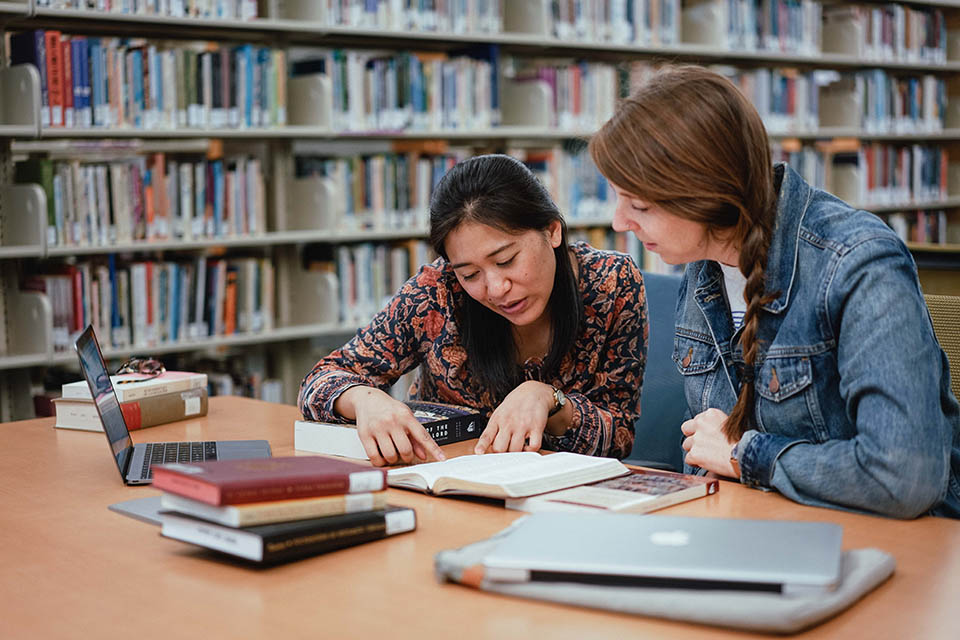
What's Happening At Regent
2024 convocation.
The Board of Governors and Senate of Regent College request the honour of your presence at the 54th Convocation for the purpose of conferring diplo...
— Learn More

Remembering Ken McAllister
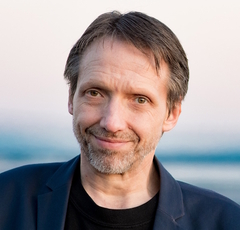
Regent College Launches New Strategic Plan
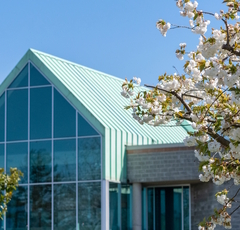
New Initiative to Help Canadian Church Groups Learn Together — Apr 04, 2024
Introducing Scholar-in-Residence Jessamin Birdsall — Apr 02, 2024
Updates to Canada's Study Permit Application Process — Mar 20, 2024
Regent College Begins Presidential Transition — Feb 27, 2024
Movements of Our Hearts: Holding Hope and Grief — May 13, 2024
Small Spiritual Practices for Everyday Life — May 15, 2024
The Ascension and the Life of the Church — May 15, 2024
Artist Talk: Bailey Carrick, WORD/FLESH — May 16, 2024
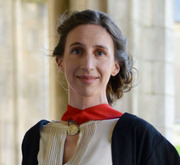
Inklings of Heaven: C.S. Lewis and Eschatology
In this Evening Public Lecture, theologian Judith Wolfe looks at how C. S. Lewis imagined the unimaginable and pointed to the centrality of resurrection life for Christian life and hope.
Watch Video
- Video Bullies & Saints by John Dickson
- Video Is Re-Enchantment Possible? by Joy Marie Clarkson
- Podcast History of Christianity in South Asia by Prabo Mihindukulasuriya
- Podcast A Theology of Disability and Limitation by Eleanor McLaughlin
- Video Regent College: The Vision
- Video Regent College: The Continuing Journey
Faithful Reading
Diane's story, student stories: the heyns, reframe: episode 1.

- Use the Library
- Collections
- Research & Writing
- Puritan Project
- Course Reserves
- Book a Room
Stay Connected
- Facebook Like
- Twitter Follow
- YouTube Subscribe
- LinkedIn Follow
Regent College
5800 University Blvd., Vancouver, B.C., Canada V6T 2E4
Phone: (604) 224-3245 Fax: (604) 224-3097 Toll free: 1-800-663-8664
[email protected]
Need assistance with the website? Fill out our Help & Support form
Regent News ENewsletter
Join our Regent College News & Updates email list and keep up-to-date on what is happening around the College.
Subscribe Now
Unless otherwise noted all site content is copyright © 2012-2024 Regent College. No reproduction, electronic or otherwise, without the permission of Regent College. Please refer to our Fine Print section for information on our privacy policies and terms of use. Website design by Domain7 .
Fill out the form below and one of our Admissions Counsellors will be happy to contact you.
For more information on how we collect, use, and disclose your personal information, please see our Privacy Policy . EU residents please also see our GDPR Compliance Statement .
- Graduate School
- Prospective Students
- Graduate Degree Programs
Doctor of Philosophy in Religious Studies (PhD)
Canadian immigration updates.
Applicants to Master’s and Doctoral degrees are not affected by the recently announced cap on study permits. Review more details
Go to programs search
The PhD in Religious Studies provides training in early Judaism, Christian origins, and religions of the Late Antique Mediterranean.
Students develop range and breadth through coursework and comprehensive examinations in Years 1 and 2 of the program; after that, students will be encouraged and enabled to narrow their focus so that they become world experts in their chosen dissertation topic.
For specific program requirements, please refer to the departmental program website
What makes the program unique?
The PhD if Religious Studies is the only program in Canada to offer students the opportunity to focus on the early religious traditions of the Mediterranean and Middle East. PhD students engage in a broad range of coursework and pursue multi-disciplinary research on the material culture, religious beliefs, languages and histories of the ancient Mediterranean and Near East. We have four full-time faculty specializing in Hebrew Bible studies, Jewish studies, and early Christianity and New Testament Studies. Our other faculty in Ancient Mediterranean and Near Eastern Studies are interdisciplinary researchers whose work regularly engages with religion and myth, including the archaeology of Roman religion and Greek mythology.
I chose UBC for many reasons, the top 3 are, the interdisciplinary nature of the department at UBC, my supervisor, and that Vancouver and the West Coast are my home.
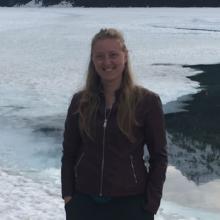
Rivkah Gillian Glass
Quick Facts
Program enquiries, admission information & requirements, 1) check eligibility, minimum academic requirements.
The Faculty of Graduate and Postdoctoral Studies establishes the minimum admission requirements common to all applicants, usually a minimum overall average in the B+ range (76% at UBC). The graduate program that you are applying to may have additional requirements. Please review the specific requirements for applicants with credentials from institutions in:
- Canada or the United States
- International countries other than the United States
Each program may set higher academic minimum requirements. Please review the program website carefully to understand the program requirements. Meeting the minimum requirements does not guarantee admission as it is a competitive process.
English Language Test
Applicants from a university outside Canada in which English is not the primary language of instruction must provide results of an English language proficiency examination as part of their application. Tests must have been taken within the last 24 months at the time of submission of your application.
Minimum requirements for the two most common English language proficiency tests to apply to this program are listed below:
TOEFL: Test of English as a Foreign Language - internet-based
Overall score requirement : 100
IELTS: International English Language Testing System
Overall score requirement : 7.0
Other Test Scores
Some programs require additional test scores such as the Graduate Record Examination (GRE) or the Graduate Management Test (GMAT). The requirements for this program are:
The GRE is not required.
Prior degree, course and other requirements
Course requirements.
Students must have completed a minimum of two years' of study in Ancient Greek, Biblical Hebrew, or Latin prior to commencing the program. More than two years is highly recommended and preferred.
2) Meet Deadlines
3) prepare application, transcripts.
All applicants have to submit transcripts from all past post-secondary study. Document submission requirements depend on whether your institution of study is within Canada or outside of Canada.
Letters of Reference
A minimum of three references are required for application to graduate programs at UBC. References should be requested from individuals who are prepared to provide a report on your academic ability and qualifications.
Statement of Interest
Many programs require a statement of interest , sometimes called a "statement of intent", "description of research interests" or something similar.
Supervision
Students in research-based programs usually require a faculty member to function as their thesis supervisor. Please follow the instructions provided by each program whether applicants should contact faculty members.
Instructions regarding thesis supervisor contact for Doctor of Philosophy in Religious Studies (PhD)
Citizenship verification.
Permanent Residents of Canada must provide a clear photocopy of both sides of the Permanent Resident card.
4) Apply Online
All applicants must complete an online application form and pay the application fee to be considered for admission to UBC.
Research Information
Research focus.
Our research strengths in Religious Studies include Hebrew Bible studies, Jewish studies, and early Christian history and literature. Many of our faculty are interested in historiography, receptions of the ancient world, and digital approaches to the past. Additionally, our faculty have expertise in a large range of ancient languages and we offer rigorous training in Ancient Greek, Latin, Biblical Hebrew, and Classical Arabic as well as introductory courses in Akkadian, Middle Egyptian, and Coptic.
Program Components
PhD students complete coursework, comprehensive exams, modern language exams, and a dissertation.
Research Facilities
Our students have access to work space in the Graduate Reading Room with exclusive access to a library of ancient texts and seminal scholarship relating to Ancient Mediterranean and Near Eastern Studies and a computer lab for research and teaching equipped with eight powerful desktop PC computers with dual monitors and a variety of software packages (including ArcGIS, Adobe Creative Suite and Agisoft Metashape) as well as a 3D printer.
Tuition & Financial Support
Financial support.
Applicants to UBC have access to a variety of funding options, including merit-based (i.e. based on your academic performance) and need-based (i.e. based on your financial situation) opportunities.
Program Funding Packages
From September 2024 all full-time students in UBC-Vancouver PhD programs will be provided with a funding package of at least $24,000 for each of the first four years of their PhD. The funding package may consist of any combination of internal or external awards, teaching-related work, research assistantships, and graduate academic assistantships. Please note that many graduate programs provide funding packages that are substantially greater than $24,000 per year. Please check with your prospective graduate program for specific details of the funding provided to its PhD students.
Scholarships & awards (merit-based funding)
All applicants are encouraged to review the awards listing to identify potential opportunities to fund their graduate education. The database lists merit-based scholarships and awards and allows for filtering by various criteria, such as domestic vs. international or degree level.
Graduate Research Assistantships (GRA)
Many professors are able to provide Research Assistantships (GRA) from their research grants to support full-time graduate students studying under their supervision. The duties constitute part of the student's graduate degree requirements. A Graduate Research Assistantship is considered a form of fellowship for a period of graduate study and is therefore not covered by a collective agreement. Stipends vary widely, and are dependent on the field of study and the type of research grant from which the assistantship is being funded.
Graduate Teaching Assistantships (GTA)
Graduate programs may have Teaching Assistantships available for registered full-time graduate students. Full teaching assistantships involve 12 hours work per week in preparation, lecturing, or laboratory instruction although many graduate programs offer partial TA appointments at less than 12 hours per week. Teaching assistantship rates are set by collective bargaining between the University and the Teaching Assistants' Union .
Graduate Academic Assistantships (GAA)
Academic Assistantships are employment opportunities to perform work that is relevant to the university or to an individual faculty member, but not to support the student’s graduate research and thesis. Wages are considered regular earnings and when paid monthly, include vacation pay.
Financial aid (need-based funding)
Canadian and US applicants may qualify for governmental loans to finance their studies. Please review eligibility and types of loans .
All students may be able to access private sector or bank loans.
Foreign government scholarships
Many foreign governments provide support to their citizens in pursuing education abroad. International applicants should check the various governmental resources in their home country, such as the Department of Education, for available scholarships.
Working while studying
The possibility to pursue work to supplement income may depend on the demands the program has on students. It should be carefully weighed if work leads to prolonged program durations or whether work placements can be meaningfully embedded into a program.
International students enrolled as full-time students with a valid study permit can work on campus for unlimited hours and work off-campus for no more than 20 hours a week.
A good starting point to explore student jobs is the UBC Work Learn program or a Co-Op placement .
Tax credits and RRSP withdrawals
Students with taxable income in Canada may be able to claim federal or provincial tax credits.
Canadian residents with RRSP accounts may be able to use the Lifelong Learning Plan (LLP) which allows students to withdraw amounts from their registered retirement savings plan (RRSPs) to finance full-time training or education for themselves or their partner.
Please review Filing taxes in Canada on the student services website for more information.
Cost Estimator
Applicants have access to the cost estimator to develop a financial plan that takes into account various income sources and expenses.
Career Outcomes
Career options.
Our aim is to equip our graduating PhD students with all the professional skills they may need to attain a tenure-track teaching position and to carry out the varied responsibilities which such a position brings. Graduates may also pursue career opportunities in government, higher education, business, not-for-profit, and more.
Enrolment, Duration & Other Stats
These statistics show data for the Doctor of Philosophy in Religious Studies (PhD). Data are separated for each degree program combination. You may view data for other degree options in the respective program profile.
ENROLMENT DATA
- Research Supervisors
Advice and insights from UBC Faculty on reaching out to supervisors
These videos contain some general advice from faculty across UBC on finding and reaching out to a supervisor. They are not program specific.

This list shows faculty members with full supervisory privileges who are affiliated with this program. It is not a comprehensive list of all potential supervisors as faculty from other programs or faculty members without full supervisory privileges can request approvals to supervise graduate students in this program.
- Bablitz, Leanne (Roman history, Roman law, Roman courtrooms, , Roman social history and law, Roman topography, Roman legal procedure)
- Cooper, Elisabeth (Archaeology of greater Mesopotamia)
- Daniels, Megan (Classical religion; Archaeology of Greece and the broader eastern Mediterranean; Late Bronze Age to Hellenistic Period; Ancient religion, sanctuaries, votive objects; Cross-cultural interaction; Ancient economies and trade; Divine kingship; Digital/data science approaches to the ancient world, particularly ancient religion; Migration and mobility across Eurasia; Phoenician culture; Ceramic analysis)
- De Angelis, Franco (Ancient Greek world history, environment, urbanism, developmnet of societies, colonization, economics, ancient literature)
- Fisher, Kevin (Prehistoric archaeology; Anthropology; Archaeological theory; Archaeometry; Archeological Data Analysis; Archeological Excavation Methods and Techniques; architecture; built environments; digital archaeology; Dynamics of Social Transformations; Mediterranean archaeology; Near Eastern archaeology; power; Social Life / Societal Life; social interaction; Urban Spaces and Urbanity; urbanism)
- Gardner, Gregg (Judaism, Rabbinic Literature, Rabbinic Judaism, Mishnah, Talmud, Jewish Studies, Jewish Law, Jewish Ethics, Charity, Jewish Ethics, Archaeology of Israel, Archaeology and Hebrew Bible, Archaeology of Jerusalemn )
- Griffin, Michael (Greek philosophy, Ancient philosophy, Plato, Aristotle, Plotinus, Proclus, Neoplatonism, Ancient logic )
- Huemoeller, Katharine (Classical Greek and Ancient Rome history; Classical archaeology; Classical linguistics; Religion and religious studies; Ancient law (in theory and in practice); Documentary texts; gender and sexuality; Non-urban life in antiquity; Roman social history; Slavery (ancient and comparative))
- Marshall, Christopher Warren (Cinema studies; Classical Greek and Ancient Rome history; Classical archaeology; Classical linguistics; Film, television and digital media; Religion and religious studies; Literary or Artistic Works Analysis; Performance and Theatrical Productions)
- McCarty, Matthew (archaeology and art of the Roman Empire and Iron Age Europe/North Africa; ancient religion and ritual practice; interplays between texts, practices, and objects; imperialism, colonialism, and identity in the ancient world; interdisciplinary, cross-cultural, comparative (especially comparison with Qin/Han China), and theoretical approaches; historiography of archaeology)
- McElduff, Siobhan (Ancient and modern translation, history of the book)
- Milstein, Sara (Classical Greek and Ancient Rome history; Classical archaeology; Classical linguistics; Religion and religious studies; biblical and cuneiform law; Hebrew Bible and Near Eastern Studies; History of Major Eras, Great Civilisations or Geographical Corpuses; literary history of the Bible; Literary or Artistic Works Analysis; Mesopotamian literature; Near Eastern scribal culture; Religious Contexts)
- Schneider, Thomas (Egyptian history and phonoly)
- Yoo, Philip
- Yoon, Florence (heralds and the representation of the absent; anonymity and naming, particularly in Greek Tragedy; props and silent characters in Greek drama)
Doctoral Citations
Sample thesis submissions.
- A daughter of Hebrews and Hellenes. Epiphany in Aseneth and contemporary ancient Greek literature
- “Let us go to the seer” : oracle giving, scribal culture, and the invention of Hebrew scripture
Related Programs
Same specialization.
- Master of Arts in Religious Studies (MA)
Same Academic Unit
- Doctor of Philosophy in Classics (PhD)
- Master of Arts in Ancient Culture, Religion and Ethnicity (MA)
- Master of Arts in Classical and Near Eastern Archaeology (MA)
- Master of Arts in Classics (MA)
Further Information
Specialization.
The following areas of concentration are offered in the Master's program: Biblical Studies; Christian Thought and Institutions; History of Religions; Islamic Studies; and Judaic Studies. The Ph.D. program at present provides training in Early Judaism, Christian Origins, and Religions of the Late Antique Mediterranean.
UBC Calendar
Program website, faculty overview, academic unit, program identifier, classification, social media channels, supervisor search.
Departments/Programs may update graduate degree program details through the Faculty & Staff portal. To update contact details for application inquiries, please use this form .
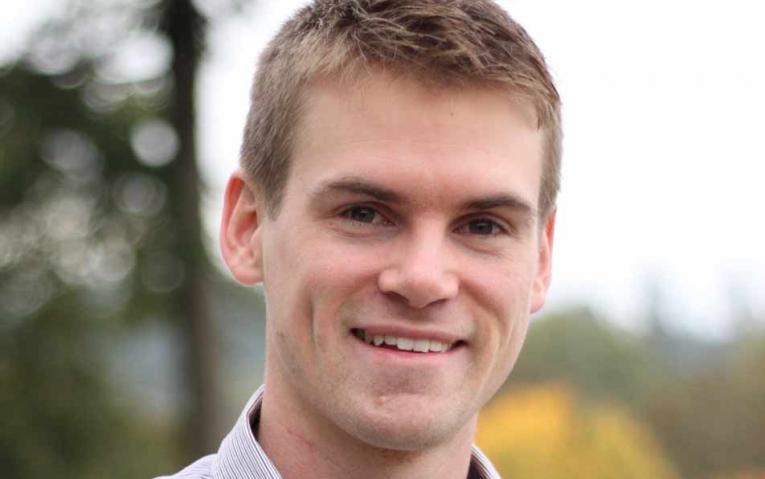
Ryan Schroeder
I chose to study at UBC because I wanted to conduct research under Dr. Sara Milstein (Assistant Professor of Hebrew Bible and Ancient Near Eastern Studies), a world-class scholar of the transmission of biblical and Mesopotamian literature. I knew that other faculty members in the Department of...

Considering UBC for your graduate studies?
Here, you can choose from more than 300 graduate degree program options and 2000+ research supervisors. You can even design your own program.
- Why Grad School at UBC?
- Application & Admission
- Info Sessions
- Research Projects
- Indigenous Students
- International Students
- Tuition, Fees & Cost of Living
- Newly Admitted
- Student Status & Classification
- Student Responsibilities
- Supervision & Advising
- Managing your Program
- Health, Wellbeing and Safety
- Professional Development
- Dissertation & Thesis Preparation
- Final Doctoral Exam
- Final Dissertation & Thesis Submission
- Life in Vancouver
- Vancouver Campus
- Graduate Student Spaces
- Graduate Life Centre
- Life as a Grad Student
- Graduate Student Ambassadors
- Meet our Students
- Award Opportunities
- Award Guidelines
- Minimum Funding Policy for PhD Students
- Killam Awards & Fellowships
- Policies & Procedures
- Information for Supervisors
- Dean's Message
- Leadership Team
- Strategic Plan & Priorities
- Vision & Mission
- Equity, Diversity & Inclusion
- Initiatives, Plans & Reports
- Graduate Education Analysis & Research
- Media Enquiries
- Newsletters
- Giving to Graduate Studies
Strategic Priorities
- Strategic Plan 2019-2024
- Improving Student Funding
- Promoting Excellence in Graduate Programs
- Enhancing Graduate Supervision
- Advancing Indigenous Inclusion
- Supporting Student Development and Success
- Reimagining Graduate Education
- Enriching the Student Experience
Initiatives
- Public Scholars Initiative
- 3 Minute Thesis (3MT)
- PhD Career Outcomes
- Great Supervisor Week
Advanced Graduate Degrees
Admission to an Advanced Graduate Degree program requires conjoint acceptance by Trinity College, and the Graduate Centre for Theological Studies (GCTS) of the Toronto School of Theology. The application process to Trinity College’s Advanced Graduate Degrees are managed through TST. The requirements for admission are posted on TST’s website .
MASTER OF ARTS
The Master of Arts (MA) in Theological Studies is a research degree for those who do not have a first degree in theology, but do hold a bachelor’s degree. It requires completion of an extensive thesis and language examinations. Many MA students intend to pursue doctoral studies.
MASTER OF THEOLOGY
The Master of Theology (ThM) is a second theological degree (requiring MDiv, MTS, MA or equivalent) intended for advanced and specialized theological study beyond the basic degree. There are two streams: Option I with thesis can serve as preparation for some forms of teaching or for doctoral study; Option II does not qualify a student for doctoral study, but provides opportunities for the scholarly enhancement of the practice of ministry or disciplined reflection on a specialized function in ministry. Many ThM students pursue their studies part-time while engaging in full-time parish ministry or other responsibilities.
DOCTOR OF MINISTRY
The Doctor of Ministry (DMin) is a professional degree, for those primarily seeking to integrate advanced theological study with the practice of ministry. Students must have a first degree in theology and will have spent at least five years in professional ministry. It is taught in a collaborative and ecumenical context and requires a thesis.
DOCTOR OF PHILOSOPHY
Doctor of Philosophy (PhD) in Theological Studies is an advanced research degree for those who intend to pursue careers in academic teaching and research. Applicants must hold a first degree in theology (MDiv, MTS or MA) with first-class standing and will have written a thesis. The degree requires substantial course work, comprehensive examinations, language qualifications, and a dissertation, which will be a unique contribution to theological scholarship.
AREAS OF STUDY
Four areas of study constitute the curriculum for Advanced Graduate Degrees program and reflect the four departments of the Toronto School of Theology:
- Bible (Old and New Testaments)
- Theology (historical, systematic, philosophical, ethics and interdisciplinary studies)
- Pastoral Studies
Students may choose to focus in any of the above areas. Trinity College has particular strength in:
- Anglican History, Theology, & Ecclesiology
- Christian Ethics
- Congregational Studies
- Contemporary Systematic Theology
- Critical Theory of Religion
- History of Liturgy
- Interfaith Partnerships
- Medieval Church History
- Psychotherapy/Counselling Education
- Philosophical Theology & Philosophy of Religion
- Political Theology
- Theologies of Reconciliation
- Kierkegaard Studies
- Science and Theology
- Theology and the Environment
You can view the areas of expertise among our faculty and teaching staff in the Faculty of Divinity .
DEGREE REQUIREMENTS
The Advanced Graduate Degrees programs are administered by the Toronto School of Theology (TST) in conjunction with Trinity College’s Faculty of Divinity. The requirements for MA, ThM, PhD and DMin degrees and a listings of courses is posted on TST’s website. Students have the opportunity to take courses for credits at other member colleges of the TST or at the University of Toronto, including at the Ontario Studies in Education. For further information, students can consult the TST Advanced Graduate Degree Handbook . Trinity College degrees are conjointly awarded by Trinity College and the University of Toronto.
THE COLLEGE ROLE
The Director of the Advanced Graduate Degree Program at Trinity serves all advanced degree students: Prof. Abrahim (Ivan) Khan ( [email protected] and 416-978-3039). Each doctoral student is given a committee by their department and each student in the MA and ThM programs has a departmental advisor. In many cases students are able to select Trinity courses as part of their program, and occasionally students have a member of the College as one of the examiners named by their department. The College role is especially significant when a student has a member of the College as thesis supervisor.
FINANCIAL ASSISTANCE
The Faculty of Divinity provides financial support to assist students in making time for their studies with Trinity College, including teaching assistantships, fellowships and bursaries . Current, we are able to provide financial assistance up to $6,000 for ThM and MA students, and at least $6,000 annually for the first four years for doctoral students (PhD and DMin).
COMMUTING STUDENTS
Students whose homes are a distance from Toronto may commute readily and organize their formal studies on one or two days per week. Some required courses may be done on a reading and research basis. Overnight rooms are available for commuting students. PhD students must reside close enough to Toronto to be available each week during the first two years of the program.
TORONTO GRADUATE STUDENTS’ ASSOCIATE (TGSA)
All graduate students enrolled at any TST college are members of the TGSA , pay fees to the TGSA, and can nominate and elect their fellow students to the TGSA Board. The TGSA is recognized by the Toronto School of Theology and the University of Toronto.
If you have any questions about the program, contact:
Faculty of Divinity [email protected] 416 978-2133
Related Links:
- Apply to Trinity College
- Faculty of Divinity Course Listing
- Online Courses at Trinity
- TST Course Catalogue
- TST Student Handbooks
- TST Key Academic Dates
- Master of Arts
- Master of Theology
- Doctor of Philosophy
- Doctor of Ministry
- Study resources
- Calendar - Graduate
- Calendar - Undergraduate
- Class schedules
- Class cancellations
- Course registration
- Important academic dates
- More academic resources
- Campus services
- IT services
- Job opportunities
- Safety & prevention
- Mental health support
- Student Service Centre (Birks)
- All campus services
- Calendar of events
- Latest news
- Media Relations
- Faculties, Schools & Colleges
- Arts and Science
- Gina Cody School of Engineering and Computer Science
- John Molson School of Business
- School of Graduate Studies
- All Schools, Colleges & Departments.
- Directories
- Future students
- Current students
- Alumni & friends
- Faculty & staff
Religion (PhD)
Program overview Program structure Admission requirements Application process Tuition & funding
Program overview
A PhD in Religion allows you to expand your study into how religious belief continues to impact the world. Concordia's Department of Religions and Cultures is one of the largest in Canada, with faculty expertise in the world's major traditions, including Buddhism, Hinduism, Christianity, Judaism, and Islam. The department has unique strengths in the fields of Canadian Jewish Studies, Roman Late Antiquity, Women, Gender and Sexuality and Iranian Studies. Our department offers a collegial environment and strong mentorship for our doctoral students. Students develop professional, transferable skills while working in a field they are passionate about. The program also allows them to design and teach their own courses, gaining valuable experience that provides them with a competitive advantage in their academic careers.
Program structure
Degree requirements, degree requirements.
Fully-qualified candidates are required to complete a minimum of 90 credits.
Please see the Religions and Cultures Courses page for course descriptions.
Religion PhD (90 credits)
Topics in judaic studies (phd), topics in religions and cultures (phd), admission requirements, admission requirements.
- MA in Religion, or equivalent, with high standing from a recognized university.
- Proficiency in English. Applicants whose primary language is not English must demonstrate that their knowledge of English is sufficient to pursue graduate studies in their chosen field. Please refer to the English language proficiency page for further information on requirements and exemptions.
Application process
Application deadlines.

Priority will be given to complete applications submitted by the deadline. In some cases, programs may continue to accept applications as long as there is space available.
International students: Considering the waiting period involved in meeting the entry requirements to Canada and Quebec , we strongly encourage international applicants to apply early and submit supporting documents prior to the deadline.
Tuition & funding
Tuition and fees.
Tuition and fees of the program may depend on your student status, among other key factors. Estimate these costs based on the most common situations.
Awards and funding
Funding packages are generally available for students in thesis-based programs. They come in the form of awards, teaching and research assistantships are offered at the time of admission to most students to allow them to focus on their research and studies. Research and thesis-based students are automatically considered for all entrance graduate awards when they apply to Concordia, provided they meet eligibility criteria. No separate application is required.
The Quebec and Canadian governments offer a number of competitive graduate scholarships. We encourage you to apply for these awards at the same time you are preparing your application.
Other programs of interest
Humanities (phd) thesis.

Transform knowledge and creative expression through interdisciplinary research and research-creation by combining your areas of interest in the humanities, social sciences and fine arts.
Centre for Interdisciplinary Studies in Society and Culture (CISSC)
Faculty of Arts & Science , Faculty of Fine Arts
© Concordia University
Chat with graduate students
Connect with us
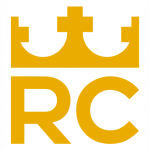
Doctor of Philosophy in Theological Studies (Ph.D.)
Awarded conjointly by regis college and the university of toronto, the doctoral studies program at regis college provides a rich intellectual and spiritual formation in the context of one of the world’s leading research universities that prepares students for advanced research, creative teaching and innovative leadership in the academy and faith communities. the goal of the doctoral program is to form theologians who excel intellectually in the church, the academy and society..
Critical knowledge of theological methodology and an ability to contribute original research in a chosen field of study will be key factors in the process. The program stresses collaborative education, with scholarly interchange across the traditional sub-disciplines of theological studies (Bible, history, theology, pastoral praxis). Research and teaching is centered in the study of Christian life and thought past and present recognizing that creative theological conversation and specialized research require in depth appropriation of philosophical and religious traditions of the past as well as ecumenical, interdisciplinary, inter-religious and cross-cultural co-operation in the present. Courses and research projects consider interdisciplinary, ecumenical, and global perspectives with focused attention to issues of method in research and learning goals in educational theory, course design, and instructional practice. Students enrolling through Regis College enjoy a committed Roman Catholic faith community grounded in Ignatian spirituality that values academic excellence, aesthetic appreciation, critical dialogue with culture and engaged learning that addresses issues of justice.
Requirements
The Doctor of Philosophy (PhD) in Theological Studies is a 4 to 6 year program with language requirements, 8 advanced level courses, comprehensive exams, thesis and oral examination. Two years of full-time residency required. Students with an A- average in an appropriate first degree in theology may register through Regis College for the PhD program.
Course and language requirements vary by Department. Please see the TST website for course units and comprehensive examinations, as well as doctoral thesis and defence requirements. The course of study for these programs requires a minimum of two years’ full-time residence and completion of a specified number of study units.
Candidates holding an STB degree are invited to inquire about the possibility of pursuing a corresponding ecclesiastical program (STL and/or STD).
All students are required to maintain an electronic portfolio that documents their progress through their programs.
Please Note: The conjoint Doctor of Theology (ThD) is no longer open to admissions. Regis College and TST are strongly committed to supporting all currently registered ThD students to the completion of their programs.
For admission requirements, procedures, and deadlines, please consult the Toronto School of Theology (TST) website
TST Website How to Apply
Basic Degrees
Ecclesiastical degrees, continuous learning.

- ABOUT CAREY
- OUR HISTORY
- EDUCATIONAL EFFECTIVENESS
- BOARD & SENATE
- COLIN GODWIN
- ADMINISTRATION
- DOCTOR OF MINISTRY
- ADVANCED DIPLOMA
- MASTER OF DIVINITY
- MASTER OF PASTORAL MINISTRY
- MASTER OF ARTS IN CHRISTIAN MINISTRY
- MASTER OF ARTS IN SPIRITUAL FORMATION
- DIPLOMA IN CHRISTIAN MINISTRY
- DIPLOMA IN BIBLICAL STUDIES
- DIPLOMA IN SPIRITUAL FORMATION
ACCELERATED PROGRAMS
Occasional student.
- APPLY TO CAREY
- TUITION AND FINANCIAL AID
- TUITION FREE START
- ACADEMIC CATALOGUE
- IMPORTANT DATES
- SPRING 2023 COURSE SPOTLIGHT
- 2023春夏選修課程介紹
- MASTER’S COURSES
- DOCTORAL COURSES
- WELCOME GUIDE
- REQUEST TRANSCRIPT
- ALUMNI INFORMATION FORM
- LOG IN TO POPULI
- THEOLOGICAL BRIDGE-BUILDING
- 亂流下的門徒訓練與教牧關懷
- CENTER FOR EXCELLENCE
- EMPLOYMENT POSTINGS
- SUBMIT A JOB POSTING
- WEEKLY RATES
- DAILY RATES
- PAYMENT OPTIONS
- HEALTH & SAFETY
- LOGIN TO POPULI
- GLOBAL THEOLOGICAL EDUCATION
NOTHING REMARKABLE
What can i give to the kingdom of god.

Carey Theological College exists to make discipleship practically achievable, personal and accessible for every season of life for everyone and everywhere. We offer graduate degrees in theology designed to be completed online.
Delivering to you contextualized theological education
Building your faith, character, and competency
Resourcing your church or agency to advance your mission
Developing sustainable partnerships in a shared vision
LATEST NEWS
Farewell and best wishes to dr. jimmy chan.
It is with both joy and sadness that we announce the departure of Dr. Jimmy Chan from Carey Theological College. For the past three years, Jimmy ha...
DR. WIL ROGAN RELEASES NEW BOOK: PURITY IN THE GOSPEL OF JOHN
Carey Theological College is excited to share that Dr. Wil Rogan, Assistant Professor in Biblical Studies (New Testament), has recently published...
DR. CHUN TSE RELEASES NEW BOOK ON THOMAS BOSTON’S THEOLOGY OF ASSURANCE
Carey Theological College is delighted to announce that Dr. Chun Tse, Assistant Professor in Biblical Studies (New Testament), has recently...
Carey Theological College Financial Management Update
Carey’s staff and Board struggled with the implications of COVID-related financial challenges into 2023. During the first five months of this year,...
DR. KEN RADANT RELEASES NEW BOOK ON THE GIFTS OF THE HOLY SPIRIT
Carey Theological College is excited to announce the release of Grace for Service: An Exegetical Theology of the Spirit’s Gifts for Ministry by...
PRESIDENT REV. DR. COLIN GODWIN RELEASES NEW BOOK ON ANABAPTIST MEDITATIONS
Carey Theological College is excited to announce the release of Anabaptist Meditations: Thirty Days of Biblical Reflection from the Founders of...
IN MEMORY OF DR. WILLIAM H. BRACKNEY
With great sadness, we would like to inform you of the passing of Dr. William H. Brackney (Bill) on Sunday, November 13, 2022. Bill brought...
CAREY WELCOMES NEW FACULTY MEMBER – CHUN TSE, ASSISTANT PROFESSOR OF BIBLICAL STUDIES (NEW TESTAMENT)
After a competitive and global search, Carey Theological College is excited to welcome Dr. Chun Tse as Assistant Professor of Biblical Studies...
REV. DR. JOYCE CHAN CONCLUDES HER SERVICE AT CAREY THEOLOGICAL COLLEGE
On behalf of the Carey Hall Board of Administration, it is with sadness that I report to you the resignation of Rev. Dr. Joyce Chan as Professor...
Women of Carey, you’re invited to a discussion on women in ministry!
Carey Women: You are invited to attend either of two inaugural gatherings of Carey’s Women: We Lead Discussion Group, taking place via Zoom on...
IN MEMORY OF LESLIE STEPHEN BIGGS
It brings us great sorrow to share that Leslie Stephen Biggs passed away on September 19, 2022. Les was deeply loved and highly respected by his...
IN MEMORY OF DR. GERALD STALEY
It is with a heavy heart that we inform you of the passing of Dr. Gerald Staley (Gerry) on Saturday, January 15, 2022. Gerry served on the Carey...
2021 Graduation Pronouncement
Hello Graduates of 2021! It has been an interesting time for you, your families, your communities, and the entire world. It has required some...
CONGRATULATIONS TO ALICE HO ON HER UPCOMING ORDINATION
Carey Theological College would like to congratulate Alice Ho (MPM, 2019) on her upcoming ordination. She would be ordained at Burnaby Alliance...
CONGRATULATIONS TO REV. ANGEL TONG AND REV. PAUL SHEN ON THEIR UPCOMING ORDINATION
Early congratulations to our alumni, Rev. Paul Shen (MPM, 2020) and Rev. Angel Tong (MDiv, 2020) on their upcoming ordination! They will be...
CAREY WELCOMES NEW FACULTY – JIMMY CHAN, ASSISTANT PROFESSOR OF THEOLOGY
“We are excited to welcome Jimmy Chan as Assistant Professor of Theology,” announced Dr. Colin Godwin, President of Carey Theological College....

IN MEMORY OF DAVID HOLTEN
It is with a heavy heart that we share David Holten passed away on Sunday, March 14, 2020, due to cancer. We are grateful for and blessed by his...
VCEMF x Carey: Equipping God’s Faithful Leaders
On September 14th, 2020 VCEMF invited Carey to participate in their monthly meeting - entitled "Equipping God's Faithful Leaders". During this...
COVID-19 GUEST UPDATE
All guests arriving from outside of Canada will be required to provide the hotel their Quarantine Exemptions if their stay occurs within the...
IN MEMORY OF DR. ELLIS ANDRÉ
It brings us great sorrow to share that Dr. Ellis André passed away on August 26, 2020, due to brain cancer. Dr. Andre was loved and...
Carey Graduation 2020
Congratulations to the 64 Carey graduates this year, one of our largest graduating classes ever. Although we cannot gather for a physical...
Additional Courses
Carey Theological College is excited about its new courses offered in the coming 2020/2021 academic year. With a focus of biblical foundations...
Carey Theological College Aligns with CBWC Response to Racial Injustice
Carey Theological College, as a ministry of the Canadian Baptists of Western Canada, supports the efforts of churches across Western Canada and...
DR. JOYCE CHAN RECOGNIZED BY THE CAREY BOARD OF ADMINISTRATION
Today we recognize and celebrate the leadership and many contributions of Rev. Dr. Chung-Yan (Joyce) Chan, as she concludes her service as Vice...
‘ENLARGING THE PLACE OF YOUR TENT’ IN THE COVID-19 EXILE
Christians know well several of the promises found in Isaiah 54 because the words are present in many songs and hymns that we sing. Three verses...
SPECIAL NOTICE: NOVEL CORONAVIRUS (COVID-19) RESPONSE
COVID-19 is a respiratory disease first identified at the end of 2019 that continues to cause international and local concerns. Carey is...
MEET THE TEAM: STUDENT LIFE OFFICE
The Student Life Office at Carey Theological College is responsible for serving all theological students. They are responsible for serving people...
DR. BRACKNEY APPOINTED INTERIM ACADEMIC DEAN
Dr. William Brackney, Carey's Pioneer MacDonald Professor of Baptist Theology and Ethics, has been appointed to a two year term as Carey...
CAREY THEOLOGICAL COLLEGE ANNOUNCES THREE NEW FACULTY APPOINTMENTS
“After an intensive faculty search,” notes Dr. Colin Godwin, President of Carey Theological College, “I join with our Board to welcome our new...
PARTNERSHIP WITH PRAIRIE COLLEGE
Carey Theological College is excited to announce a partnership with Prairie College (in Three Hills, AB) to offer an Integrated Bachelor of...
$300,000 MATCHING FOR BUILDING CAMPAIGN
It has been just over a year since Carey Theological College launched our Building Campaign to raise funds to construct a new 5-story residence...
THEOLOGICAL EDUCATION FOR THE WHOLE PEOPLE OF GOD
Carey is committed to providing theological education to all corners of the world. This has been part of our DNA since we first began our first...
A FESTSCHRIFT IN HONOUR OF WILLIAM H. BRACKNEY
We launched a Building Campaign in October of 2018 to raise funds in order to build a new Christian residence and ministry centre. With God’s...
FALL TERM HAS BEGUN – THEOLOGICAL PROGRAMS
We are excited to welcome 30 new students to the Carey Fall 2019 cohort, the largest incoming class we have had in the past 15 years. These...
BACK TO SCHOOL – CHRISTIAN RESIDENCE AT UBC
Over Labour Day weekend, 40 UBC undergraduate students moved into their dorm rooms at Carey. The residents have regular opportunities to explore...
$6.5 MILLION FOR BUILDING CAMPAIGN
William carey centre names two fellows.
The William Carey Centre for Excellence in Ministry at Carey Theological College is excited to announce the appointment of its inaugural Research...
CAREY GRADUATION 2019
On the afternoon of Sunday, June 9th, 2019, the Carey graduates gathered together to celebrate the fruitful results of years of hard work with...
IN MEMORY OF REV. DR. COLLINS
Reverend Dr. Philip Collins, aged 88, passed away peacefully on May 31, 2019. Collins was the Principal of Carey Hall from 1985 to his retirement...
GRADUATION 2019 LIVE STREAM
Carey Theological College will be live streaming the 2019 graduation! Be sure to tune in and watch the this year's graduates cross the stage and...
CAREY COMMUNITY REPORT 2018
The world has experienced an unprecedented decline in qualified and capable Christian leaders. Addressing the need for strong Christian...
CAREY PROFESSOR CONCLUDES SERVICE
Dr. Clement Tong, Assistant Professor in Biblical Studies and Director of Educational Initiatives (Chinese Ministries), will be concluding his...
CAREY EARNS CCCC SEAL OF ACCOUNTABILITY
By demonstrating integrity and complying with the CCCC Standards of Accountability, Carey Hall has earned the right to display the Seal of...
NEW PUBLICATION BY CAREY PROFESSOR
Congratulations to Carey Professor, Dr. Bill Brackney, on the release of his new theological work, The Spirit among the Dissenters: Other Voices...
SHOUSE APPOINTED DOCTOR OF MINISTRY STREAM DIRECTOR
Dr. John W. Shouse has been appointed director of the Carey D.Min. Stream in Preaching and Worship. Dr. Shouse is currently professor of theology...
END OF THE SCHOOL YEAR WITH UBC’S PRESIDENT
Dr. Santa Ono, President and Vice-Chancellor of the University of British Columbia, and his wife, Mrs. Wendy Yip-Ono, UBC Ambassador, invited the...
GRADUATION 2019 INVITATION
The Board of Administration and the Senate of Carey Theological College would like to cordially invite you to the attend the 2019 Carey...
FACULTY SHARING: MISSIONS FEST 2019 AND BIBLE STUDY
Every January, Vancouver is host to Missions Fest – one of Canada’s largest and most influential annual missions conferences. It’s a wonderful...
BUILDING CAMPAIGN 2020
In October 2018, Carey Theological College launched a $15.5M capital campaign to build a new 5-storey building on our Vancouver campus at the...
CAREY PROFESSORS WEIGH IN ON POVERTY AND POOR ISSUES
Carey professors Chan and Brackney have joined major global specialists in an examination of religious perspectives on the poor and poverty....
WILLIAM CAREY CENTRE PRODUCES FIRST IMPRINT
The William Carey Centre for Excellence in Ministry, created in 2018 by the President and the Board of Administration, has produced its first...
STUDENT LIFE NEWS – DEC 2018
This fall Carey will see a partial staff transition in the Student Life Office, as Agnes Li (Registrar) and Lulu Yeh (Student Life Associate) are...
ADMISSIONS AND DEADLINES – NOV 2018
Effective January 1, 2019, Carey Theological College will be implementing an annual application timeline for admission to degree programs. This...
STUDENT LIFE OFFICE CHANGES – NOV 2018
D.min program updates – nov 2018.
With new developments underway in Carey Theological College’s Doctor of Ministry program (such as the development and installation of a...
STUDENTS AT CAREY : CORNERSTONE WITH SNOOPY SUM
I need to thank God for leading my journey to Carey Theological College. The desire of getting equipped and discerning what God’s plan on me had...
UNDER THE CAREY TREES: EVENT REGISTRATION
Your worship team is invited to lead Christmas praises "Under the Carey Trees". Check out the available schedule below and indicate it in the...
CAREY’S DOCTOR OF MINISTRY PROGRAM
arey Theological College is well on the way to developing a unique doctoral studies program. We have long had a D.Min program that has produced a...
STUDENTS AT CAREY : COR 500 WITH MICHAEL LUM
My name is Michael Lum and I am in my first year of the MDiv program. I am currently the lead pastor of Cremona Congregational Church in Cremona,...
FALL 2018 PRESIDENT’S SCHOLARSHIP RESULTS
Carey Theological College would like to thank everyone who applied for the Fall 2018 President's Scholarship....
ONLINE TEACHING MODEL AT CAREY THEOLOGICAL COLLEGE
"Don’t waste your time teaching online." There he sat. Drinking his coffee. Eckert Tolle, the best-selling author, Oprah Winfrey’s guru, popular...
CAREY UNVEILS NEW CENTER OF MINISTRY EXCELLENCE
Carey Theological College is pleased to announce it has established the William Carey Centre for Ministry Excellence, a major academic centre and...
GRADUATION SPEECH – JENNIFER FRIESEN
JENNIFER FRIESEN...
PANDA TRAINER AND SHEPHERD – DR. JOYCE CHAN
JOYCE CHAN - VICE PRESIDENT ACADEMIC AND PROFESSOR OF CHURCH HISTORY My daughter and I watched an IMAX movie, “Pandas,” over the summer. The mo...
NEW PRESIDENT’S SCHOLARSHIP
Carey is pleased to announce the creation of the new full-tuition President’s Scholarship for students enrolling in Carey’s online Master of...
CAREY GRADUATION 2018
Congratulations to the 2018 graduates....
ANNOUNCING CLARA CHING AS NEW DIRECTOR OF ADVANCEMENT
Carey Theological College is pleased to announce that Clara Ching will be joining the team as the Director of Advancement, effective March 12....
New Library Direction for Carey Theological College and Regent College
Carey Theological College and Regent College are pleased to announce that, effective July 1, 2017, Regent College has agreed to take over full...
COLIN GODWIN TO CONTINUE THROUGH 2022
CAREY Theological College on the Campus of the University of British Columbia, announced today that Dr. Colin Godwin has extended his term as...
INSTITUTIONAL SELF-STUDY
This year, Carey Theological College is engaging in a comprehensive institutional self-study as part of our accreditation with the Association of...
CAREY歡迎新教員謝進教授——新聘新約聖經研究助理教授
經過一段競爭激烈、全球性的教員招聘過程後,克理威廉神學院非常開心能夠歡迎謝進博士加入本院,成為新約聖經研究助理教授。 謝進長於香港,後來搬到美國深造,在馬里蘭大學獲得電機工程學學士、碩士、博士學位。二〇〇一年,謝進與他的妻子在紐約的一場神學研討會中,蒙召進入全職事奉。他接著在明尼蘇達州的伯...
陳頌恩老師即將從克理威廉神學院教職卸任
謹代表克理威廉中心行政董事會向大家報告這個令人難過的消息:本院教會歷史教授,陳頌恩(Joyce...
致2021屆畢業生的公開信
2021屆畢業生,你們好 今日的我們與親朋和全世界都處在一個特殊的時刻。我們的生活需要改變,有時是為了大家好,有時是不得不,而有時很遺憾地,我們需要退一步。克理威廉神學院非常清楚到這一點。過去兩年中,我們嘗試過許多方法,去調整了畢業典禮的形式:延後典禮的日期、其它後來失敗的方法、甚至想過把...
恭賀校友賀梁佩珠即將接受按立成為牧師
克理威廉神學院在此提前向校友賀梁佩珠(Alice Ho,教牧事工碩士2019年畢業生)致上最誠摯的祝福,並恭喜她即將於2022年1月16日(星期天)下午三時於加拿大卑詩省本立比宣道會接受按立成為牧師。屆時歡迎眾弟兄姊妹在線觀禮,或親臨現場參加按牧典禮。...
恭喜校友沈保羅、唐安琪即將受按立成為牧師
克理威廉神學院在此提前恭喜校友沈保羅(Rev. Paul Shen,教牧事工碩士2020年畢業生)、唐安琪(Rev. Angel Tong,道學碩士2020年畢業生)即將於2021年12月4日下午三時於聖公會溫哥華牧愛堂接受按立成為牧師,並參與加拿大亞裔及多元文化事工(AMMiC)。...
CAREY歡迎新教員陳偉明教授——新聘助理教授
克理威廉神學院院長Colin Godwin博士在此宣布:「我們熱烈歡迎陳偉明博士加入本院擔任神學助理教授。在整個面試過程中,陳博士讓我們印象深刻,無論是他的教學能力、學術成就,或是對本院使命的委身:預備加拿大以及世界各地的男女信徒成為牧師、宣教士以及基督徒領袖。」...
紀念 David Holten
我們心情沉重,David Holten弟兄在2021年3月14日因癌症回天家。我們感謝他作為Carey的朋友、董事會成員和司庫,貢獻甚豐,带给Carey很多祝福。...
基督教大溫哥華華人教牧同工團契與克里威廉神學院: 裝備神的忠實領袖
2020年9月14日,VCEMF(基督教大溫哥華華人教牧同工團契)邀請克里威廉神學院參加他們的每月例會——“裝備神的忠實領袖”。...
COVID-19 訪客最新資訊
所有來自加拿大境外的客人,如果他們曾在加拿大政府限定的旅行範圍內停留,要向酒店提供他們的檢疫豁免。...
紀念 ELLIS ANDRÉ博士
ANDRÉ博士於2020年8月26日因腦癌去世,我們為此深感悲痛。ANDRÉ博士受到許多人的愛戴和敬仰,他將被懷念。...
克里威廉神學院2020年度畢業禮
祝賀今年64位克里威廉神學院學生畢業,這是我們有史以來畢業人數最多的年份之一。雖然我們今年不能聚集在一起舉行畢業典禮,但克里威廉神學院的行政管理委員會、教職員工仍想要慶祝他們的學業上的成功,並以此記念神的信實。...
克里威廉神學院即將在2020-2021學年開設新課程,這個是個令人興奮的消息。...
克里威廉神學院支持CBWC對種族不公正的回應
克里威廉神學院作為加西浸聯会的一項事工,支持加拿大西部和世界各地的教會譴責種族主義。我們一起支持彌迦書6:8中所體現的靈性轉型、社會變革和對正義的承諾。...
陳頌恩博士獲克里威廉神學院董事會頒發獎狀,表揚她任學術副院長期間的貢獻
陳頌恩牧師/博士即將卸任學術副院長一職之際,克里威廉神學院董事會想藉此機會表揚她對神學院的領導和貢獻。陳博士會繼續擔任克里威廉神學院教會歷史教授一職。...
疫情令你流亡 上帝擴大你的帳篷
基督徒們常會透過唱頌讚美詩歌,而很熟悉以賽亞書54章中所談及來自上帝的應許。以下這三段經文常被引用,說明信仰上帝的人都能找到希望和信心。...
回應新型冠狀病毒(COVID-19)緊急情況
這是克里威廉神學院對COVID-19的最新回應...
新樓計劃獲三十萬等額捐款承诺
一年多前,克里威廉神學院(Carey)開始了一項新樓計劃,為建一棟在卑詩大學校園內五層高基督教學生宿舍而募款。在已經募得六百六十萬加幣的基礎上,我們欣喜地宣布新增的30萬加幣等額捐款承諾。...
CAREY全職及客座教授暑期進深培訓
Carey為教授團定期舉辦專業教學進深培訓以不斷提升教學質量。2019年7月,Carey 的教授團隊參加了由Wabash神學與宗教教學中心資助的專業教學發展研討會, 由經驗豐富的教育工作者Bernie Potvin博士和 Nicki...
新樓計劃已獲650萬元捐款
自1958年開始破土動工建設第一棟大樓,克里威廉神學院一直矗立於卑詩大學(UBC)溫哥華校區的校園。直至今天,我們擁有兩棟樓(教學樓及學生宿舍)和一塊空地,這塊60年來被寄託以种种美好期許的空地現暫用作停車場。...
整裝待發為主作⼯: 2018-2019學年克⾥威廉神學院學⽣畢業典禮
2019年6⽉9⽇週⽇下午,畢業⽣們濟濟⼀堂,與⽼師、同學、家⼈、朋友們⼀起慶祝數年來努⼒學習所獲得的豐碩成果。與往年不同,今 年畢業⽣中華⼈⾯孔特別多,或青春或⽼成,每⼀位畢業⽣都意氣奮發,做好準備要⽤畢⽣所學回應上帝呼召。...
現今世代的優秀基督徒領袖數量出現前所未有的下降,克里威廉神學院會一如既往,致力為普世教會和世界各地所需栽培基督徒領袖:我們務必繼續向教牧同工和事工領袖提供面向全球的神學教育,及向入住我們基督教學生宿舍的卑詩大學本科生提供門徒培訓。...
學院動態: 一月 2019
本課程是為幫助學生就新約聖經的倫理教導與現代社會信仰生活作整合而設計。課程重點為介紹新約倫理的本質、歷史、方法和詮釋課題,俾讓學生將新約作品勾勒的信仰憧憬對應信仰群體當下的處境和議題。課程將選取個別議題,突顯信仰群體與21世紀社會的重疊和距離,以引發和裝備學員對倫理議題作更深入的思考和辨識,...
教授介紹: 一月 2019 – 孫寶玲博士
孫寶玲博士於香港出生和長大,先後從台灣國立成功大學獲理學士學位、香港浸信會神學院獲道學碩士學位和美國南方浸信會神學院獲哲學博士學位。...
老師心語: 一月 2019 – 魏健智博士
在資訊爆炸的年代,追求知識往往是基督徒選擇的成長路線,因此不少信徒盡力抽出時間和空間來參與不同類型的神學課程。...
學生園地: 一月 2019 -岑祈霞姊妹
又是一年一度的感恩節。在加拿大,也是在Carey,就這樣度過了一年半的不平凡時光。回憶起來,常讓我想起這句禱告經文—「擴張我的境界」。...
2019年其他中文課程一覽
鮑維均博士主講:路加福音及使徒行傳聖經研習營 。克里威廉學院於11月9-10日舉行「路加福音及使徒行傳聖經研習營」,特別邀請到美國三一神學院新約教授及系主任鮑維均博士主...
教授介紹: 孫寶玲博士
陳偉成博士(Dr. Wilson Chan),是克里威廉神學院本學年「角石組合科」(Cornerstone Module)課程講師,同時擔任大温哥華建道神學院校外課程特約講師及學生導師,以及加西明道社特約講師。...
課程介紹 – 新約倫理
Carey podcasts.
「神學在線教室」是克里威廉神學院為本地及普世教會的門訓需要而設計的全天候神學學習空間。不論是教會小組組長、主日學老師或教牧同工,都能在「神學在線教室」找到適切各種事奉處境的神學資源作小組討論、主日學課程以及個人進修。...
老師心語: 十月 2018 – 陳頌恩博士
昨天我到一家商店,看見入口處放了一個歡迎顧客的告示牌,上面寫著:「感謝您包容店內的混亂,我們希望在未來向您提供更好的服務。」...
學生園地: 十月 2018 – 趙苒姐妹
教授介紹: 十月 2018 – 陳偉成博士, 學院動態: 十月 2018, 學院動態: 八月 2018.
克里威廉學院於11月9-10日舉行聖經研習營,特邀請到鮑維均博士一連兩天主講路加福音與使徒行傳。...
教授介紹: 八月 2018 – 趙錦德博士
趙錦德博士自2007年起擔任 Carey 神學院客席教授 ,教授領導學和屬靈領袖的品格與呼召等科目。...
學生園地: 八月 2018 – 沈保羅
2017年初入讀Carey,2018年6月文憑課程畢業,並將繼續攻讀教牧事工碩士。如果以此描述我在克里威廉的神學之旅,實在是寡淡無味的。...
老師心語: 八月 2018 – 陳頌恩博士
我和女兒在這個暑假看了一部IMAX電影《熊貓》。電影描述一位中國科學家從另一位美國科學家那兒學習如何幫助在 「溫室」 中長大的貓熊和棕熊,重新找回在野外生存和繁衍的本能。...
THEOLOGICAL DEGREES
Empowering faithful christian leaders for every generation, for every culture, for every community..

Doctor of Ministry

Master of Divinity

Diploma in Christian Ministry

UPCOMING COURSE SPRING 2018

WINTER 2021 WITH LES BIGGS
SPIR 699 – Spiritual Formation for Congregations and Christian Leaders
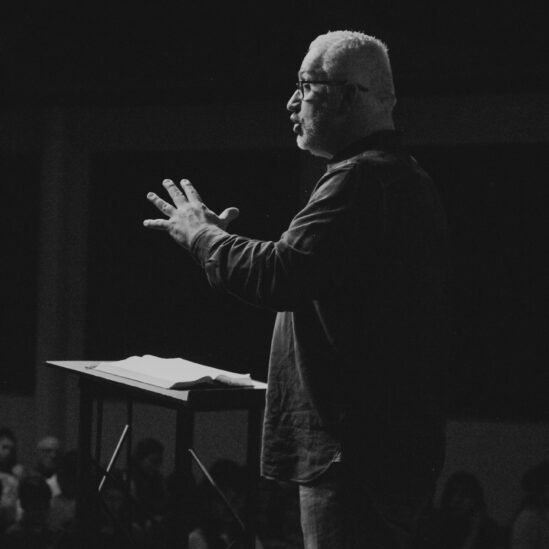
FALL 2020 WITH SAM TSANG
APPL 619CM – Advanced Preaching Mentorship Guided Study (Mandarin)
Appl 619/dmpm 999 gs – advanced preaching mentorship guided study.

SUMMER 2021 WITH JOYCE CHAN
SPIR 699CM – Special Topics: Deepening Life with God

SUMMER 2021 WITH WIL ROGAN
BIBL 699 – Special Topics in Biblical Studies

SPRING 2021 WITH JOYCE CHAN
SPIR 500CM – Intro to Spiritual Formation: Theology & Praxis
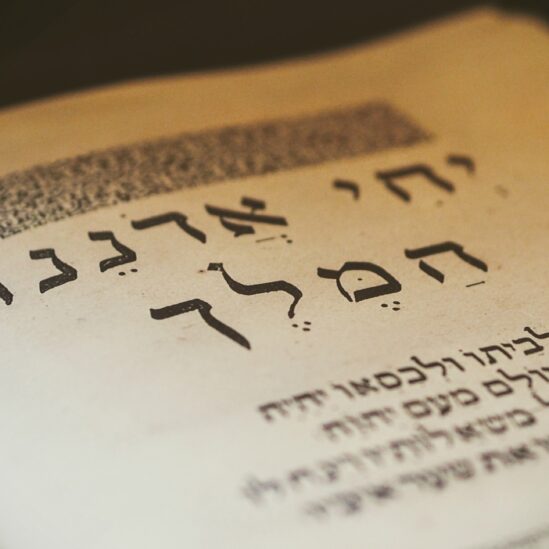
SPRING 2021 WITH AMY CHASE
BIBL 506 – Introduction to Hebrew II

SPRING 2021 WITH KEN RADANT
THEO 699 – Special Topics in Theological Studies: Spiritual Gifts in the NT and the Church
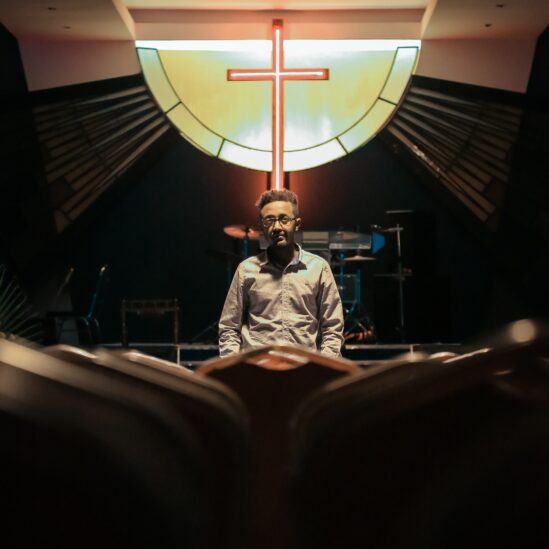
FALL 2020 WITH DAN RUSSELL
APPL 584/DMPM 984 – Leadership in Faith-based Contexts

SUMMER 2021 WITH POLING SUN
BIBL 507CM – Introduction to Greek

WINTER 2021 WITH KEN RADANT
THEO 541 – Introduction to Christian Thought II

SPRING 2021 WITH CORY WILSON
THEO 504 – Gospel in a Multi-Cultural, Multi-Faith World

SUMMER 2021 WITH AMY CHASE
BIBL XXX – Biblical Interpretation: Theory & Craft

SPRING 2021 WITH WIL ROGAN
BIBL 531 – Introduction to the New Testament II

WINTER 2021 WITH DAVID CHAN
APPL 699CM – Special Topics in Leadership and Administration

WINTER 2021 WITH COLIN GODWIN
HIST 562 – Baptist Identity

WINTER 2021 WITH AMY CHASE
BIBL 521 – Introduction to the Old Testament II
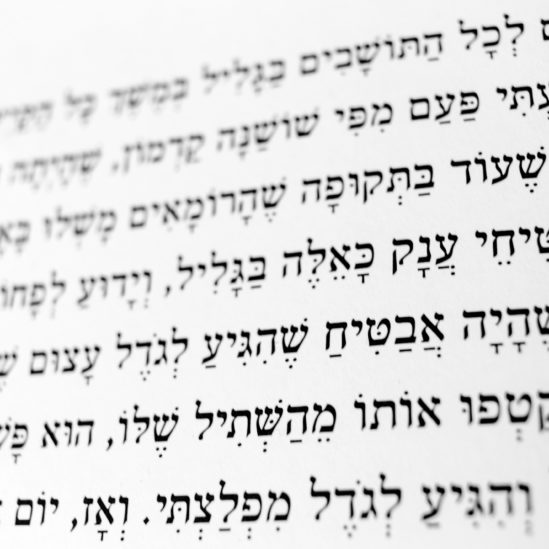
BIBL 505 – Introduction to Hebrew I

WINTER 2021 WITH WIL ROGAN
BIBL 530 – Introduction to the New Testament I

FALL 2020 WITH WILSON CHAN, LEO CHIA, AND ENOCH YIM
CAPS 700CM – Capstone
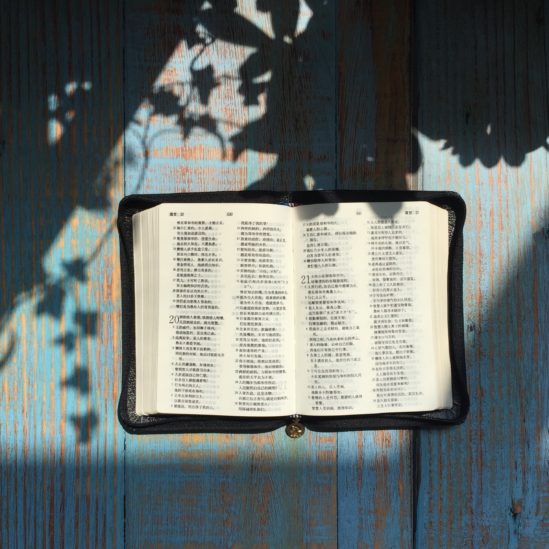
FALL 2020 WITH YAN LIANG
APPL 613CM – Christianity and Chinese Culture (Mandarin)

FALL 2020 WITH KEN RADANT
THEO 540 – Introduction to Christian Thought I

FALL 2020 WITH AMY CHASE
BIBL 520 – Introduction to the Old Testament I
FALL 2020 WITH KEN RADANT AND WIL ROGAN
CAPS 700 – Capstone
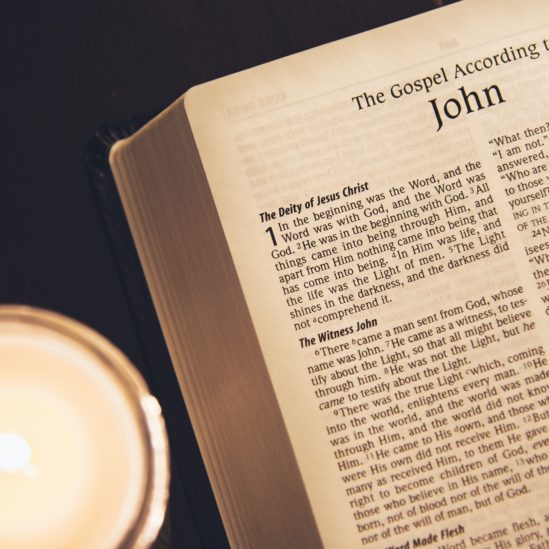
FALL 2020 WITH WIL ROGAN
BIBL 623 – Gospel of John

WITH CORY SEIBEL
HEALTHY TRANSITIONS FOR THE SECOND HALF OF LIFE

WITH GEMMA JONES
ALZNEIMER CAFE AND DEMENTIA CARE
CAREY’S VISION IS TO EMPOWER FAITHFUL CHRISTIAN LEADERS FOR EVERY GENERATION, CULTURE, AND COMMUNITY

The Aging Population . 1
People of faith need a framework to understand retirement. There is a common term used in our culture regarding the unprecedented growth of people over 55: the great tsunami. But tsunamis are destructive and leave devastation in their wake....

The Aging Population . 2
Consequently, you are no longer foreigners and strangers, but fellow citizens with God’s people and also members of his household, 20 built on the foundation of the apostles and prophets, with Christ Jesus himself as the chief...

Myths of Retirement
I know how great this makes you feel, even though you have to put up with every kind of aggravation in the meantime. Pure gold put in the fire comes out of it proved pure; genuine faith put through this suffering comes out proved...
GET A TUITION-FREE START TO YOUR THEOLOGICAL EDUCATION
This limited time Tuition-Free Start includes full tuition waivers for all of Carey’s eight foundational courses in Bible, Theology, and Church History taken for credit within the 2022-2023 academic year.
Is Carey Theological College right for you?
Take the survey to find out!
7 PhD Degrees in Theology in Canada for 2024
- Humanities Studies
Humanities Studies (7)
- Language Studies (1)
- Philosophy (1)
- Christian Studies (1)
- Ministry (2)
- Spirituality (1)
- Back to main category
- United Kingdom (0)
- Australia (0)
- Toronto (2)
- Vancouver (0)
- Edmonton (0)
- Bachelor (0)
- Certificate (0)
- Diploma (0)
- Associate of Applied Science (0)
- Associate Degree (0)
- Graduate Certificate (0)
- Associate of Arts (0)
- Summer Course (0)
- Advanced Diploma (0)
- Postgraduate Diploma (0)
- Graduate Diploma (0)
- Foundation Year (0)
- Postgraduate Certificate (0)
- A-level (0)
- Preparatory Program (0)
- Doctor of Education (0)
- Advanced Certificate (0)
- Juris Doctor (0)
- Undergraduate Pathway (0)
- Undergraduate Certificate (0)
- Graduate Pathway (0)
- 2 years (0)
- 3 years (1)
- 4+ years (5)
- Full time (6)
- Part time (0)
- English (7)
- Spanish (0)
- Portuguese (0)
- Italian (0)
- On-Campus (5)
- Distance Learning (1)
- Blended (0)
- Christian Studies
- Spirituality
Popular degree type
Popular study format
Popular education type
PhD Degrees in Theology
Although some people study theology to prepare for a particular religious order, others study it to understand the divine. Through reviewing religious and philosophical beliefs throughout history, students can gain a better grasp not only on each of the specific traditions but also on people’s beliefs in general.
Canada is the best country to pursue your higher education if you are an interactive person. Almost every ethnic group is represented in Canada thus it's a multicultural society. Language barrier is not an issue to foreign students as Canada is considered the world's leader in language training.
Requirements for the PhD program often involve the student having already obtained a Master’s degree. Additionally, a thesis or dissertation primarily consisting of original academic research must be submitted. In some countries, this work may even need to be defended in front of a panel.
- Faculty and Administration
- Affirmation Of Faith
- Accreditation And Affiliations
- Our Centres
- Canadian Baptist Archives
- Course Schedule
- Course Syllabi
- Spring Term
- Fees for Current Students
- Convocation
- Resources & Forms
- Rules & Regulations
- Student Support Program
- Funding and Fees
- Application Requirements
- Application Reference Forms
- Online Information Sessions & Campus Visits
- Take a Virtual Tour
- Request Information
- Alumni Benefits
- MDC Newsletter
- Join Our Mailing List
- Ways To Give
- Donate Online
- Monthly Giving
- Publications

Our goal is for students to have the best possible experience while preparing for the work to which God has called them.
Doctor of practical theology.
The DPT program is designed for ministry practitioners who desire to contribute to their field of ministry through practice-led research .
The DPT is offered in hybrid form, which includes a combination of online and in-class sessions. Students may attend the in-class sessions remotely via livestream.
Program Duration
Designed to be completed in 3 years
Approximate cost per 5-unit course is listed above. For full details, visit our Tuition and Fees page.
Program Requirements
Note: Research Dissertation Seminar will be required if proposal has not been submitted to faculty and approved upon completion of 6 courses. May be repeated once for continuing status.
Supervision The doctoral committee includes a primary supervisor along with the program director of the Doctor of Practical Theology program. A second advisory member of the faculty will be added at the time of Research Proposal approval.
Program participants work with the Primary Supervisor to choose courses that fit with their overall focus, and that move them toward advanced research preparation.
Admission Requirements
Agreement with the McMaster Divinity College Statement of Faith
BA or equivalent in an appropriate field of study with a minimum B average
Master of Theological Studies (or similar i.e. Master of Divinity, Master of Arts, etc.) with a minimum B average (students may enter the DPT immediately following completion of their Master’s degree)
A major paper from your Master’s degree, ideally in the field that you want to research
Three to five years of ministry experience or equivalent is preferred. A minimum of three years of ministry, not necessarily pastoral, is required for entrance into the program. The ideal candidate will be encouraged by their local church, or church-based organization, for advanced professional work in a particular area of focus.
Application Deadline
Fall Term March 15 Winter Term August 1
Contact Admissions

IMAGES
VIDEO
COMMENTS
PhD - PhD in Theology - Durham/VST . VST has partnered with the Department of Theology and Religion at Durham University in the United Kingdom to deliver a PhD program in Vancouver. ... This program is for permanent residents and citizens of Canada. Outcomes. Useful information - requirements, costs, expectations and faculty ...
Graduate programs at Knox include two master's programs (MA and ThM) and two doctoral programs (PhD and DMin). The Doctor of Philosophy in Theology (PhD) is a research doctorate undertaken in a specialized area of study. Program requirements include meeting research language requirements in two languages, course work, general examinations ...
The program distinguishes itself by its attention to methodological rigour within an interdisciplinary framework and by the unique ecumenical context provided by the Toronto School of Theology. The PhD is offered conjointly by Trinity College and the University of Toronto. Length: Normal length is four years.
The purpose of the Ph.D. program is to engage students in advanced academic studies, normally in preparation for an academic career. The community of graduate scholars in this program is engaged in a broad spectrum of critical research involving any number of interdisciplinary approaches conducted on a number of different religious traditions.
The Doctor of Philosophy (Christian Theology) is a PhD research degree designed to prepare students for the teaching, writing, and leadership ministries of the Church and academy. It is a full-time degree that builds upon previous foundational theological study and encourages the development of valuable research and teaching experience.
Regent College was founded in 1968 as the first graduate school of theology in North America to make education of the laity its central focus. Our Christ-centred graduate programs and courses bring together vibrant evangelical faith and rigorous academics. ... B.C., Canada V6T 2E4. Phone: (604) 224-3245 Fax: (604) 224-3097 Toll free: 1-800-663 ...
This page shows a selection of the available PhDs in Canada. If you're interested in studying a Theology and Religious Studies degree in Canada you can view all 13 PhDs. You can also read more about Theology and Religious Studies degrees in general, or about studying in Canada. Many universities and colleges in Canada offer English-taught PhD's ...
The PhD if Religious Studies is the only program in Canada to offer students the opportunity to focus on the early religious traditions of the Mediterranean and Middle East. PhD students engage in a broad range of coursework and pursue multi-disciplinary research on the material culture, religious beliefs, languages and histories of the ancient ...
A PhD in Religion at Concordia University Montréal allows you to expand your study into how religious belief continues to impact the world. Concordia's Department of Religions and Cultures is one of the largest in Canada, with faculty expertise in the world's major traditions, including Buddhism, Hinduism, Christianity, Judaism, and Islam.
Learn more about PhD in Theology Program including the program highlights, fees, scholarships, events and further course information. ... making it one of the three foremost university research hubs in Canada. Many renowned laboratories were born at University of Montreal, including: MILA, the world's leading university research centre in deep ...
The Director of the Advanced Graduate Degree Program at Trinity serves all advanced degree students: Prof. Abrahim (Ivan) Khan ( [email protected] and 416-978-3039). Each doctoral student is given a committee by their department and each student in the MA and ThM programs has a departmental advisor. In many cases students are able to ...
Program overview. A PhD in Religion allows you to expand your study into how religious belief continues to impact the world. Concordia's Department of Religions and Cultures is one of the largest in Canada, with faculty expertise in the world's major traditions, including Buddhism, Hinduism, Christianity, Judaism, and Islam.
A PhD in Religion at Concordia University Montréal allows you to expand your study into how religious belief continues to impact the world. Concordia's Department of Religions and Cultures is one of the largest in Canada, with faculty expertise in the world's major traditions, including Buddhism, Hinduism, Christianity, Judaism, and Islam.
The Doctor of Philosophy (PhD) in Theological Studies is a 4 to 6 year program with language requirements, 8 advanced level courses, comprehensive exams, thesis and oral examination. Two years of full-time residency required. Students with an A- average in an appropriate first degree in theology may register through Regis College for the PhD ...
Theology graduate programs are often interdisciplinary, incorporating skills and knowledge from subjects like history, philosophy, literature, ethics, and sometimes even psychology. In most cases, theology graduate programs are academic in nature, using scholarship to hone a greater understanding of the divine and our relationship to that idea.
Doctorate in Theology in Canada. In a theology PhD program students pursue an in-depth course of study where they immerse themselves in research to discover new approaches to examining religion. Doctor of Theology PhD students are likely to focus a great deal of their energies on exploring their chosen topic of interest.
In Canada, students can earn a PhD that is both rooted in a seminary but also conferred conjointly by a leading research university. Like their American counterparts, Canadian PhDs take the longer road to graduation. As Zach mentioned, the programs typically take 4-7 years, beginning with a chunk of coursework, which is followed by ...
Find top universities/colleges Theology along with their rankings, tuition fees, admission process, entry requirements and scholarships offered. ... Best PHD in Theology Universities/Colleges in Canada. Select. Economics . Finance . Psychology . Education . ... Best In Faculty University Canada West Vancouver, British Columbia ₹24.9L 1st Year ...
Carey Theological College exists to make discipleship practically achievable, personal and accessible for every season of life for everyone and everywhere. We offer graduate degrees in theology designed to be completed online. Delivering to you contextualized theological education. Building your faith, character, and competency.
PhD Degrees in Theology Although some people study theology to prepare for a particular religious order, others study it to understand the divine. Through reviewing religious and philosophical beliefs throughout history, students can gain a better grasp not only on each of the specific traditions but also on people's beliefs in general.
Doctor of Practical Theology. The DPT program is designed for ministry practitioners who desire to contribute to their field of ministry through practice-led research. The DPT is offered in hybrid form, which includes a combination of online and in-class sessions. Students may attend the in-class sessions remotely via livestream. Program Duration.
University of Cincinnati. Cincinnati, United States. More interesting programmes for you. Find the best PhD programmes in the field of Theology and Religious Studies from top universities in Canada. Check all 0 programmes.